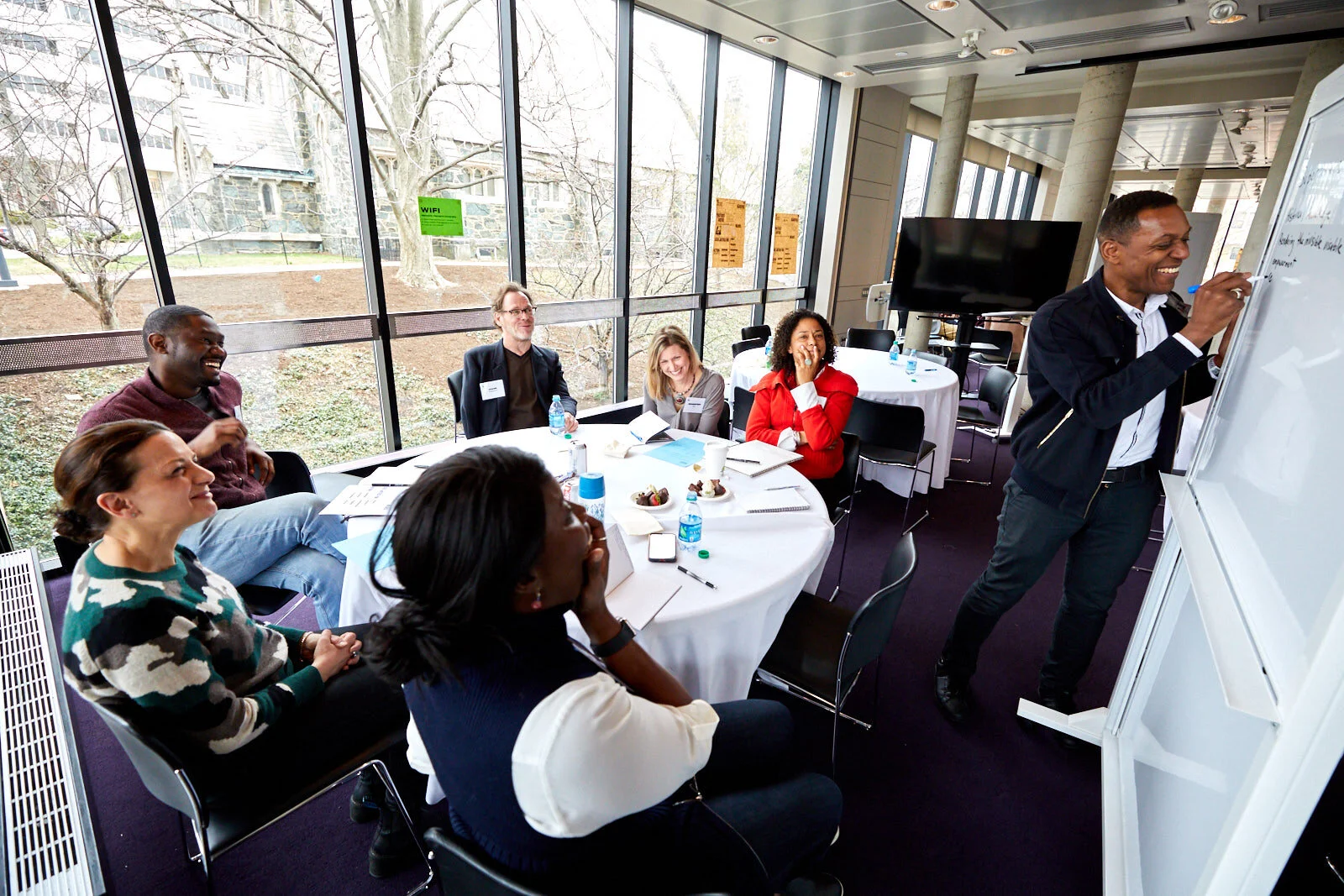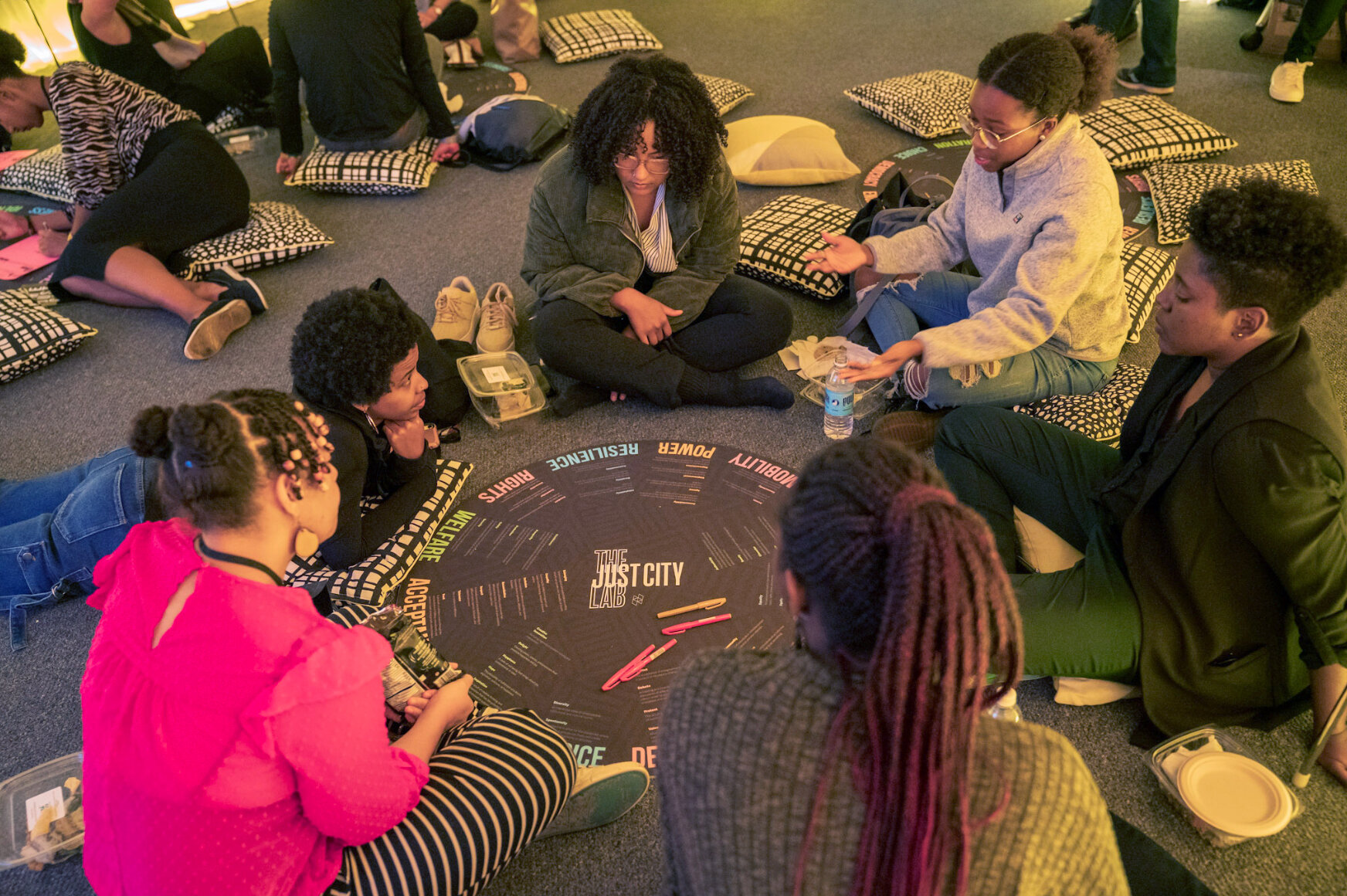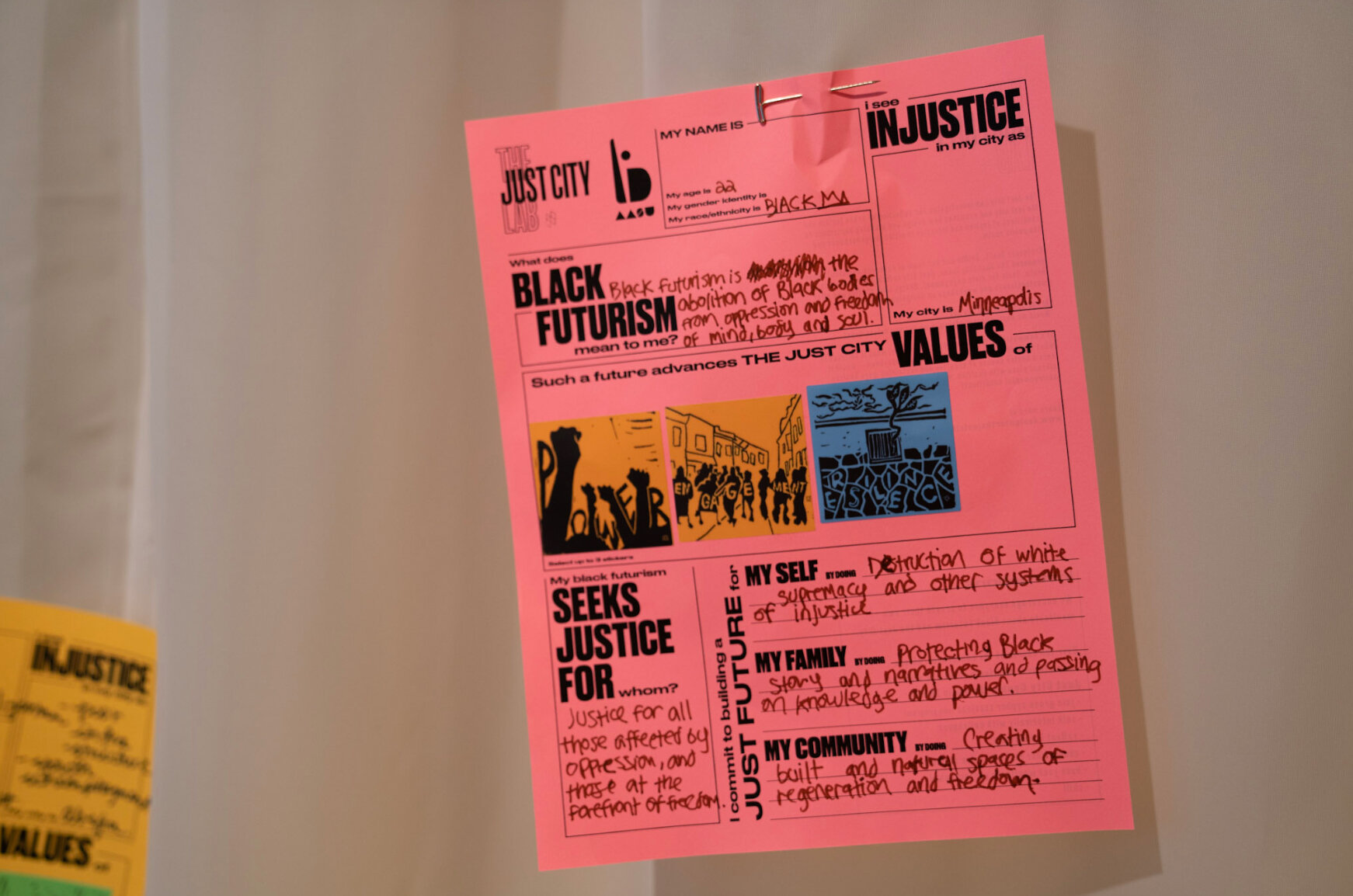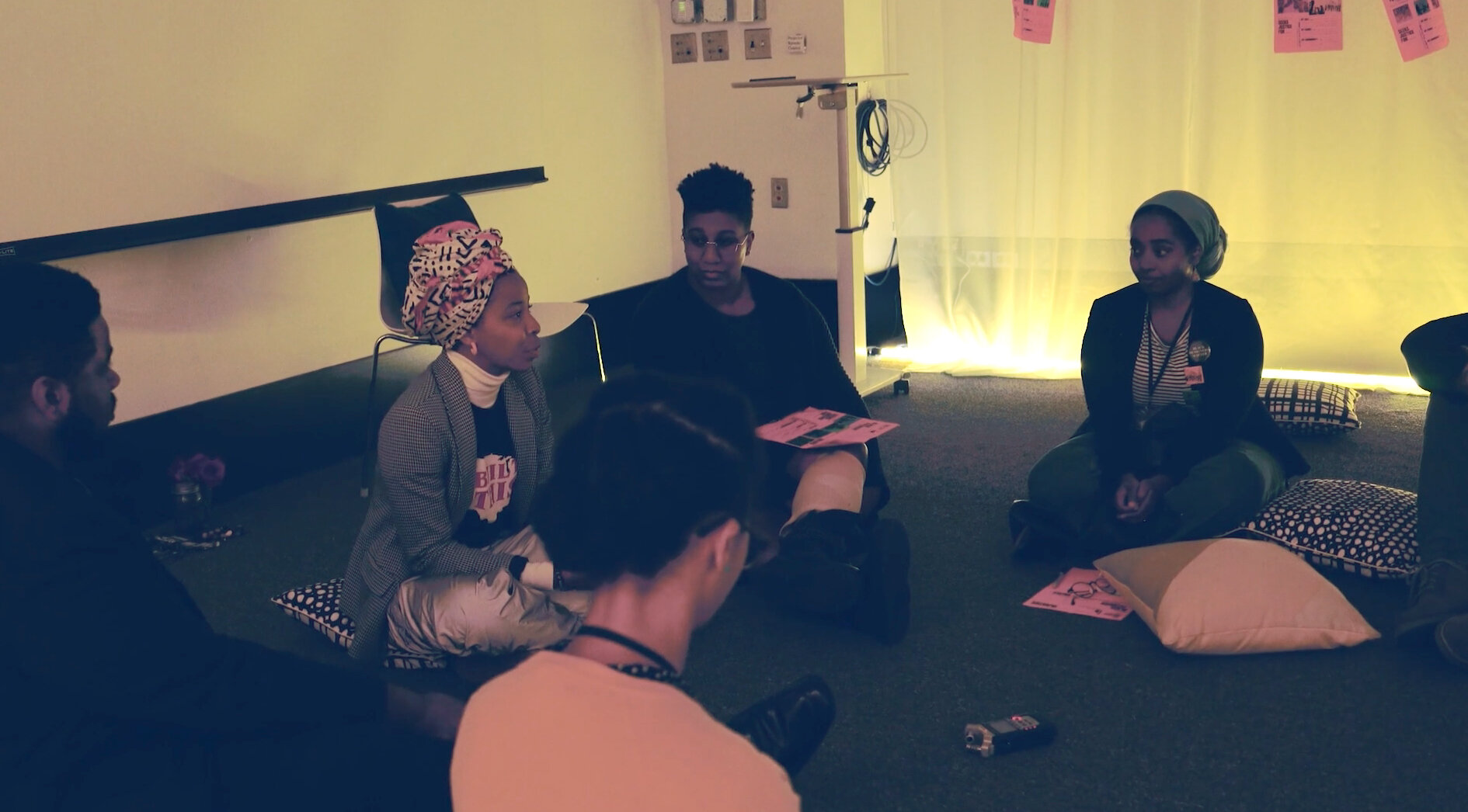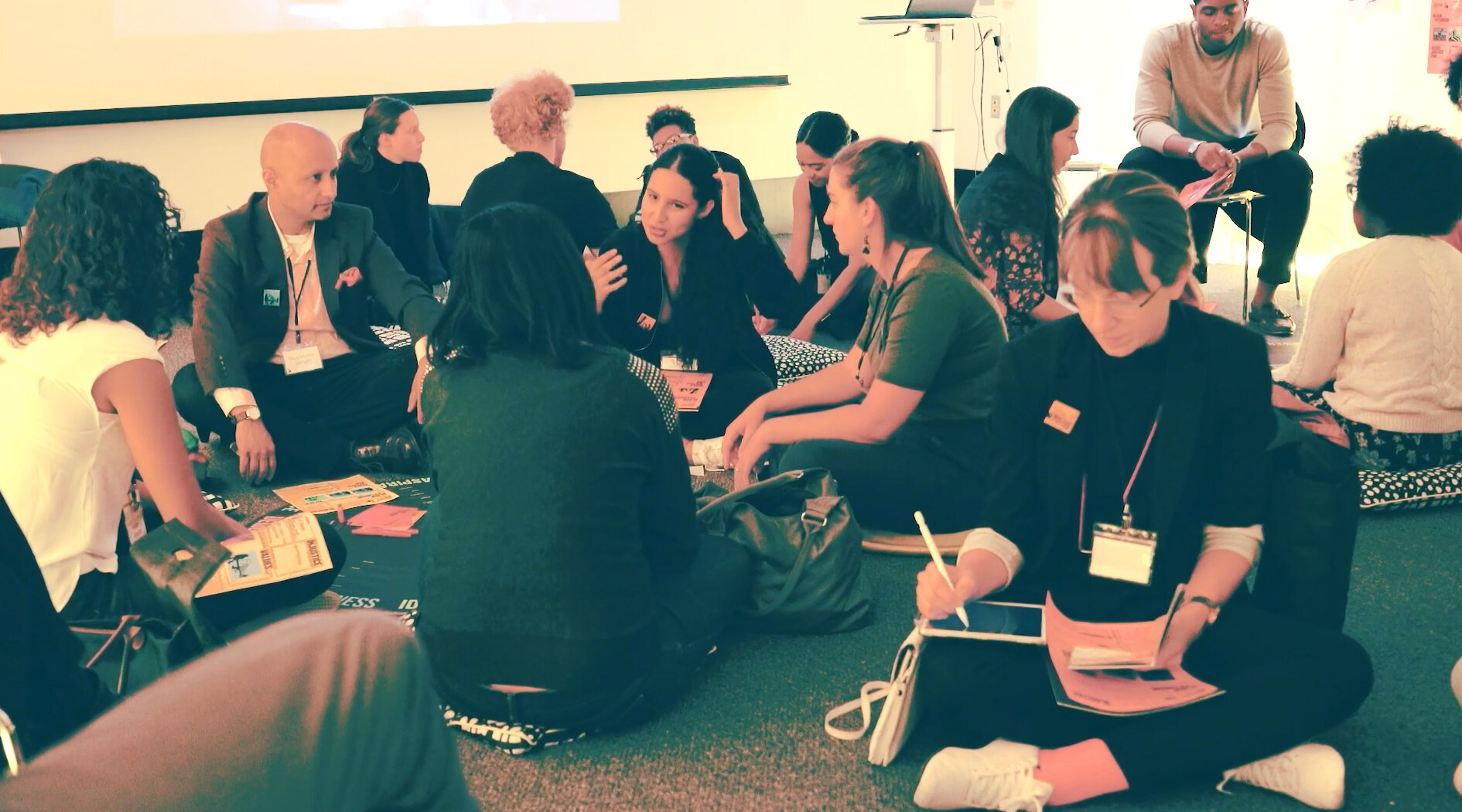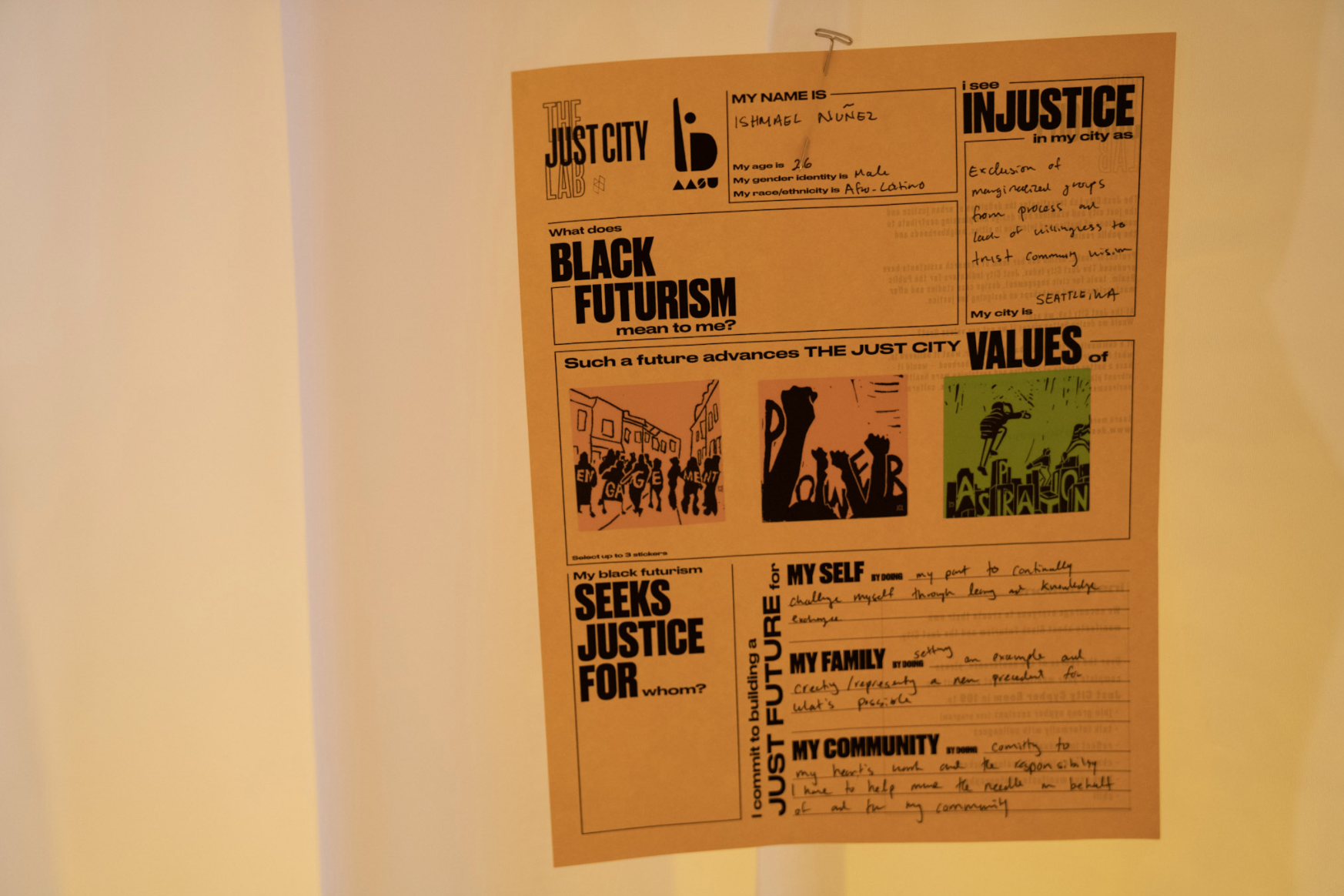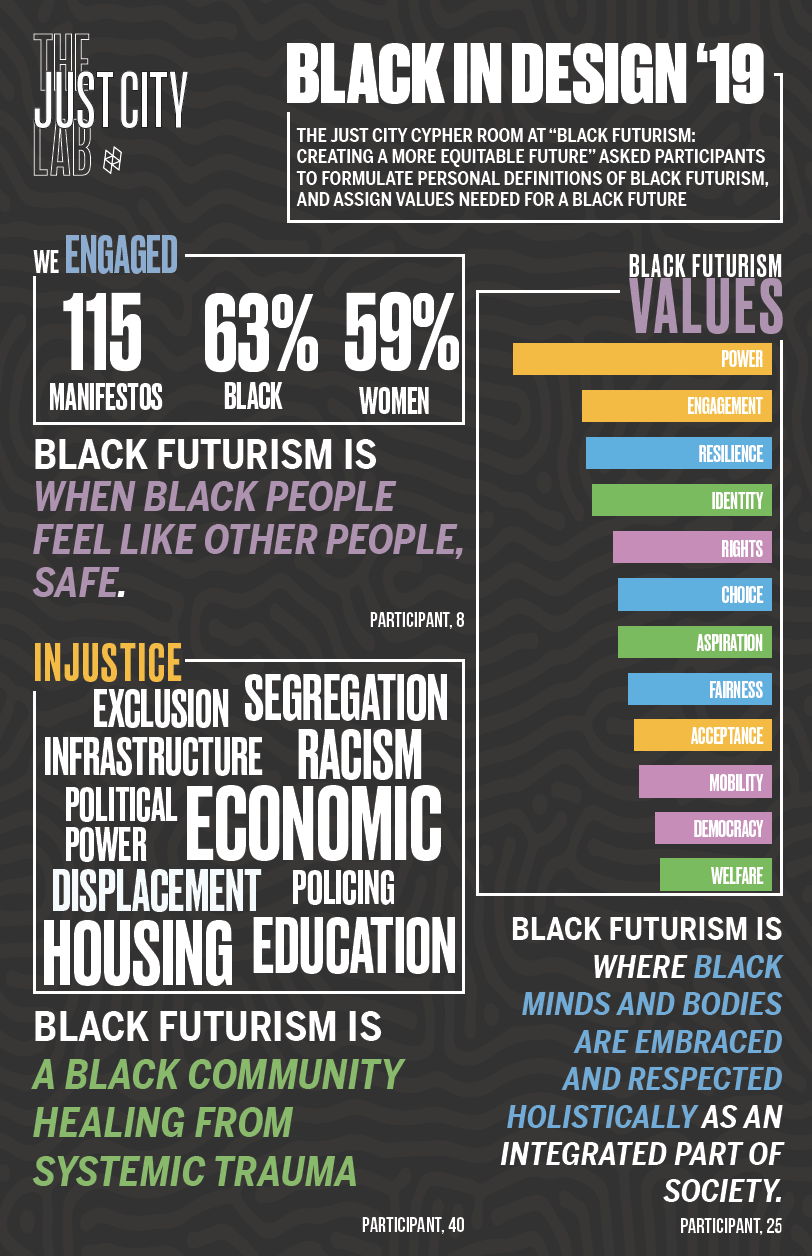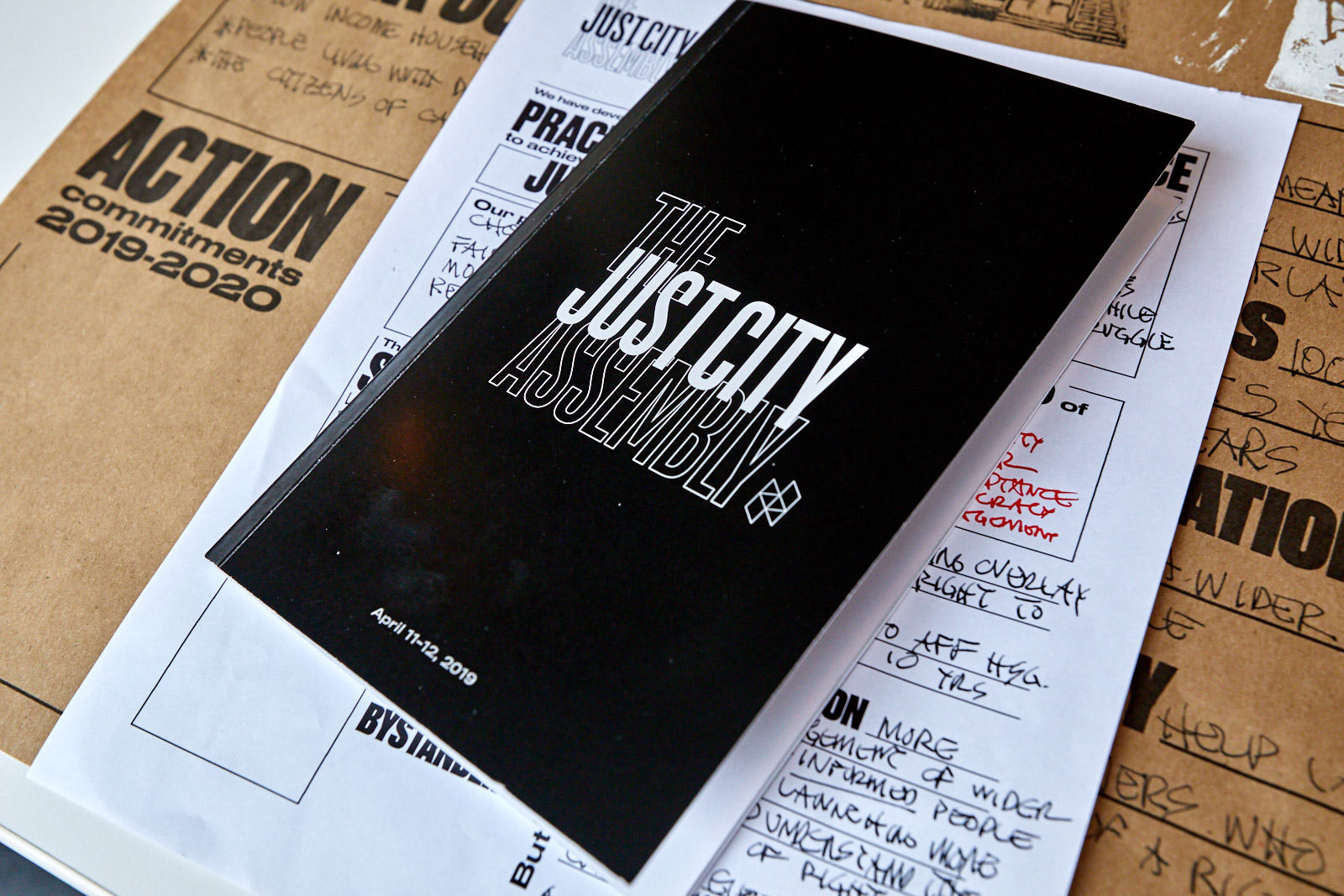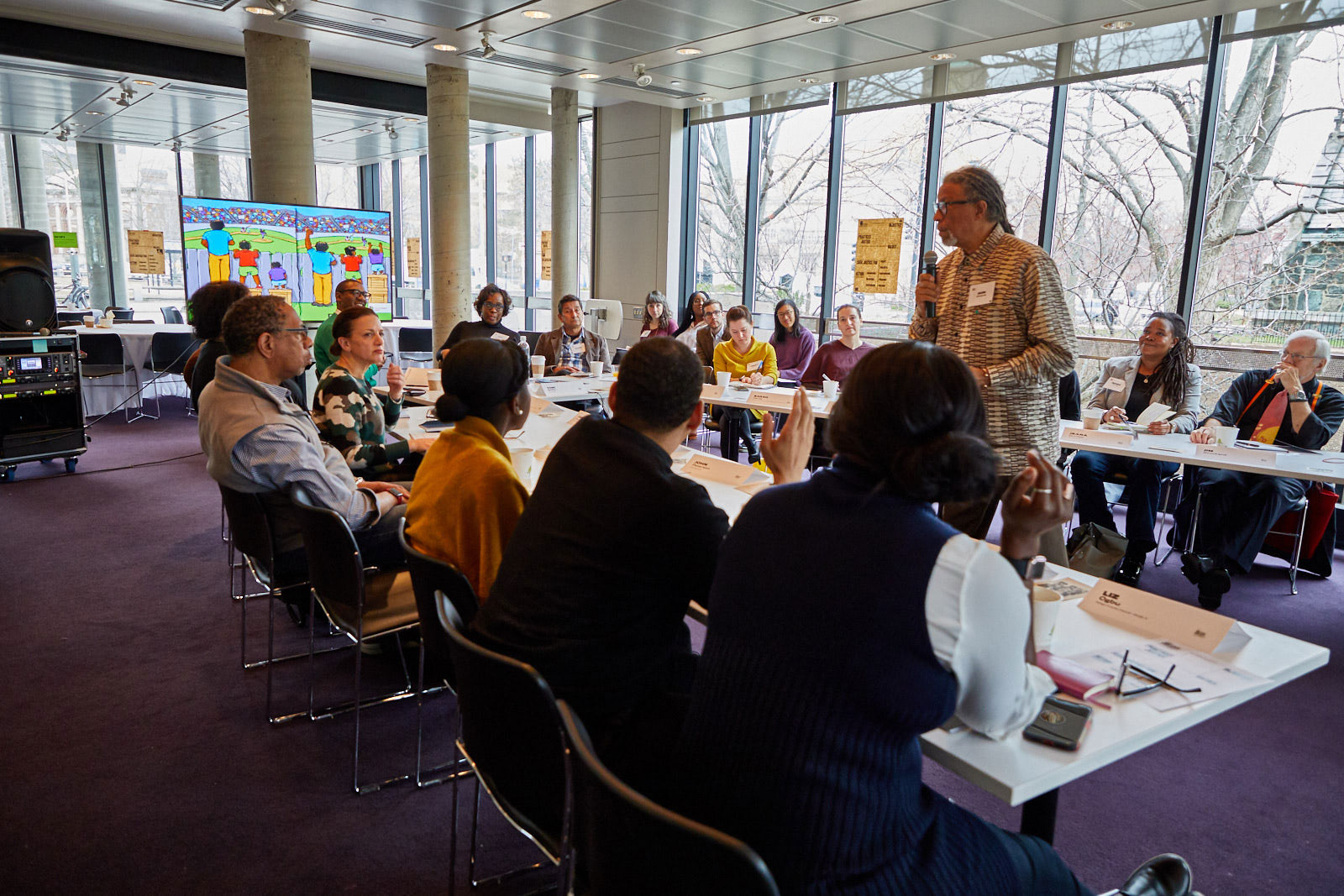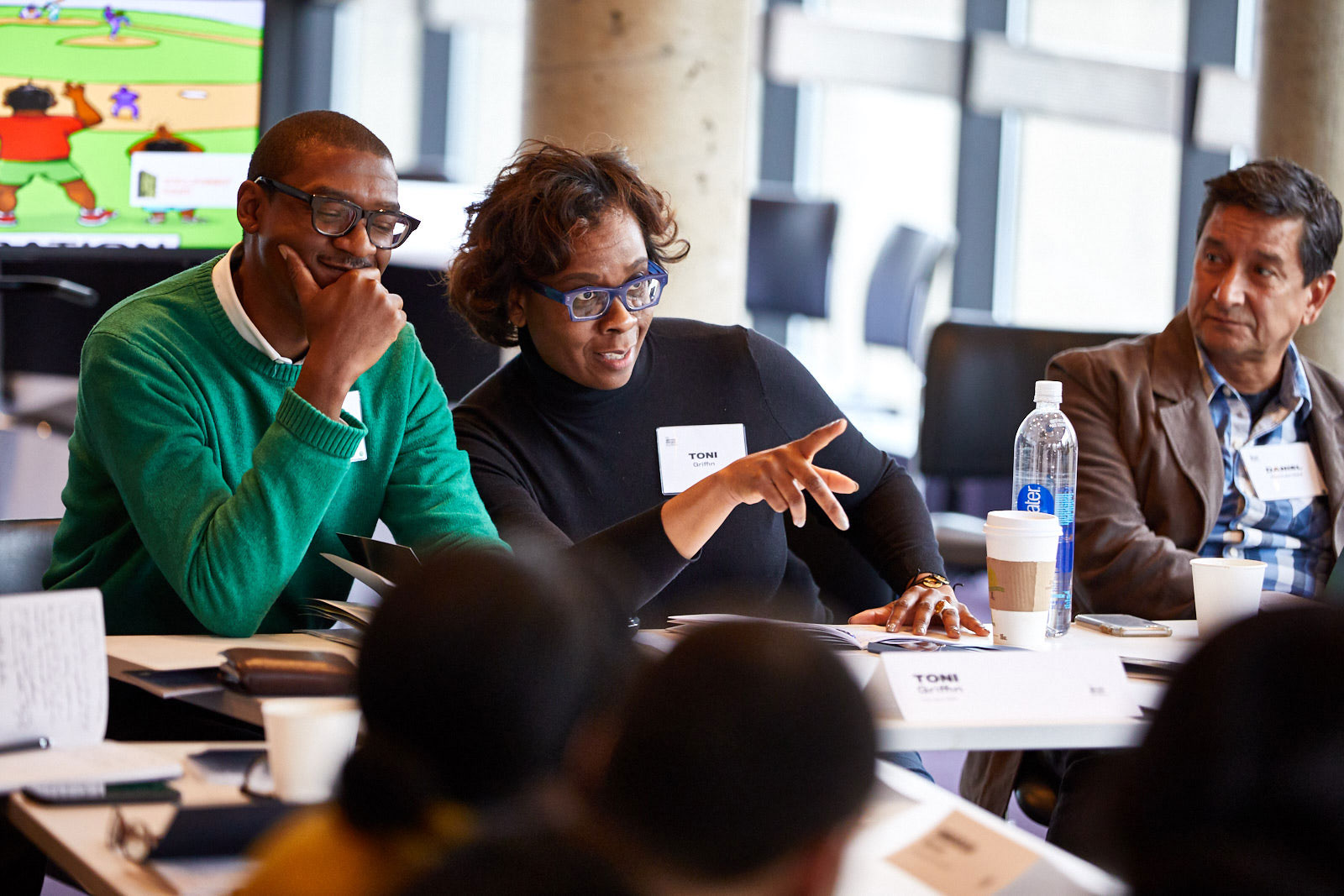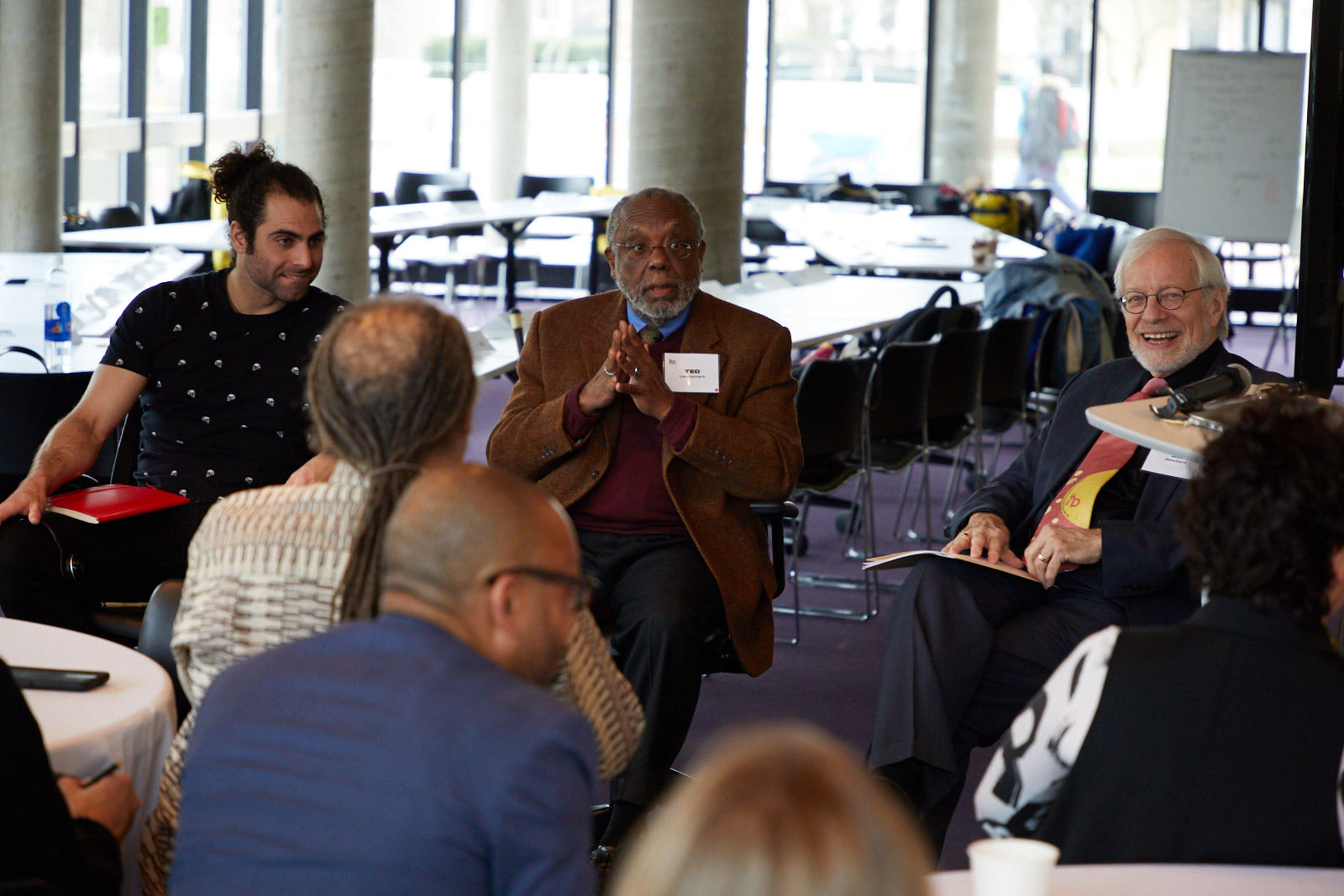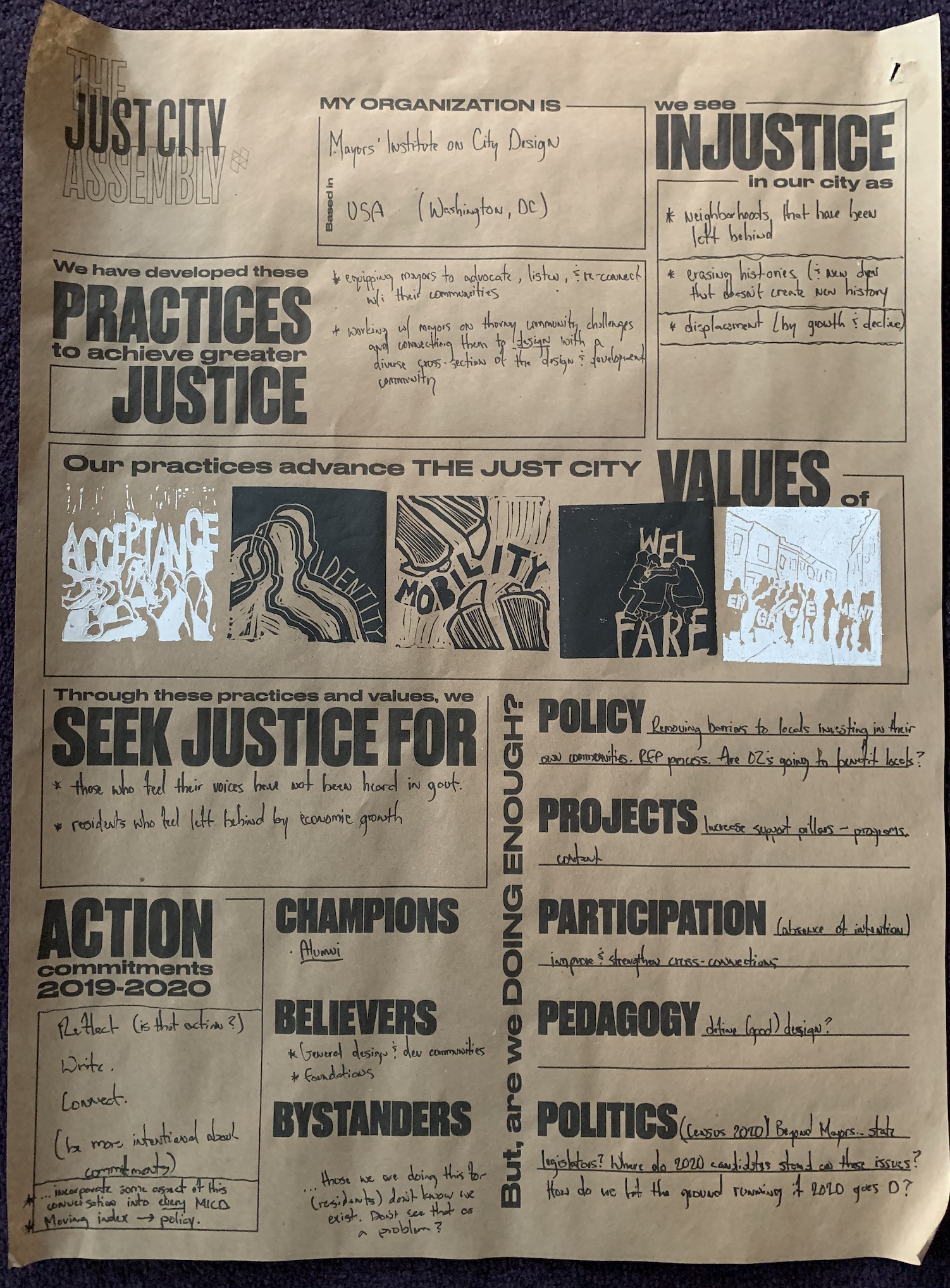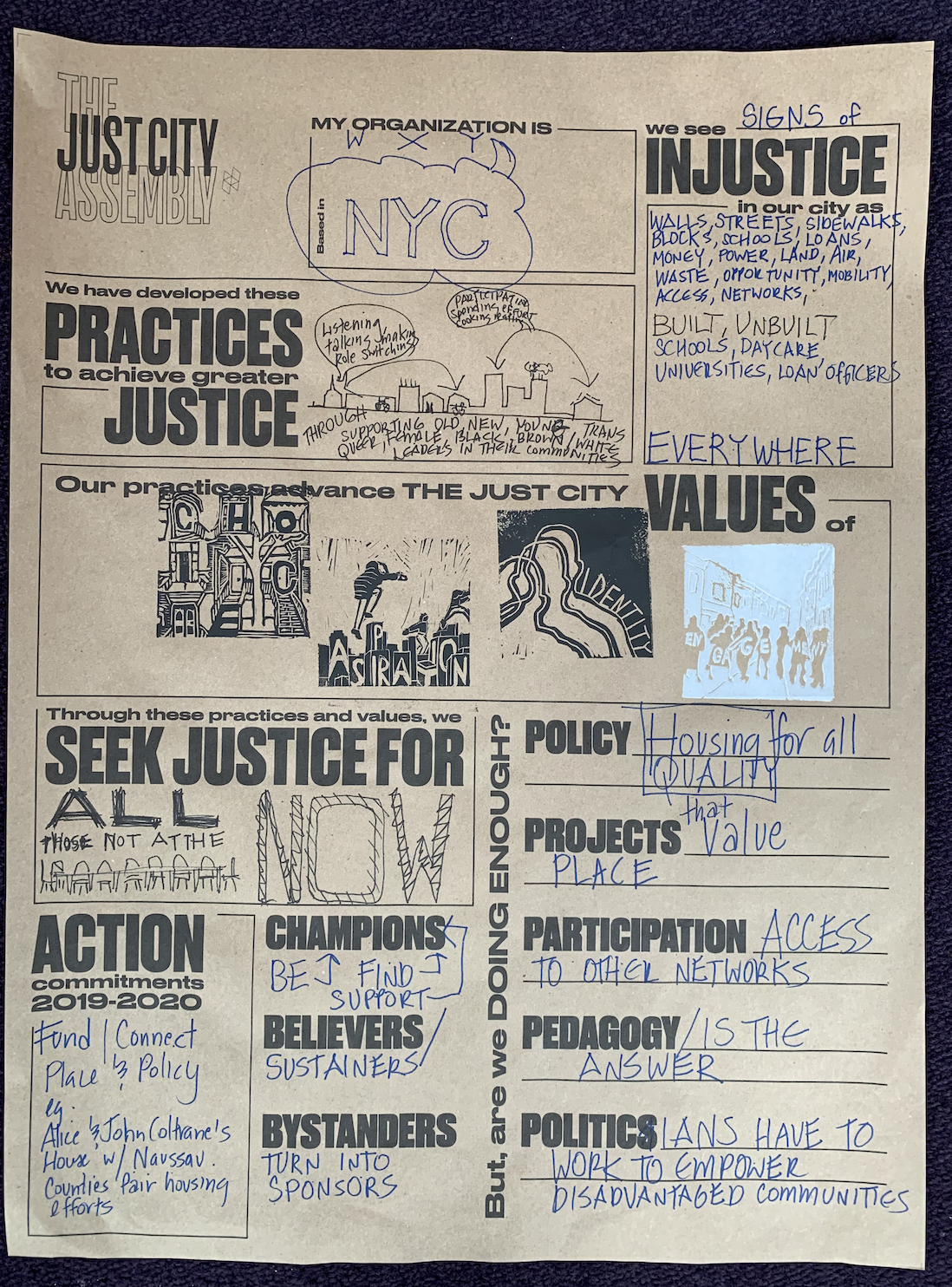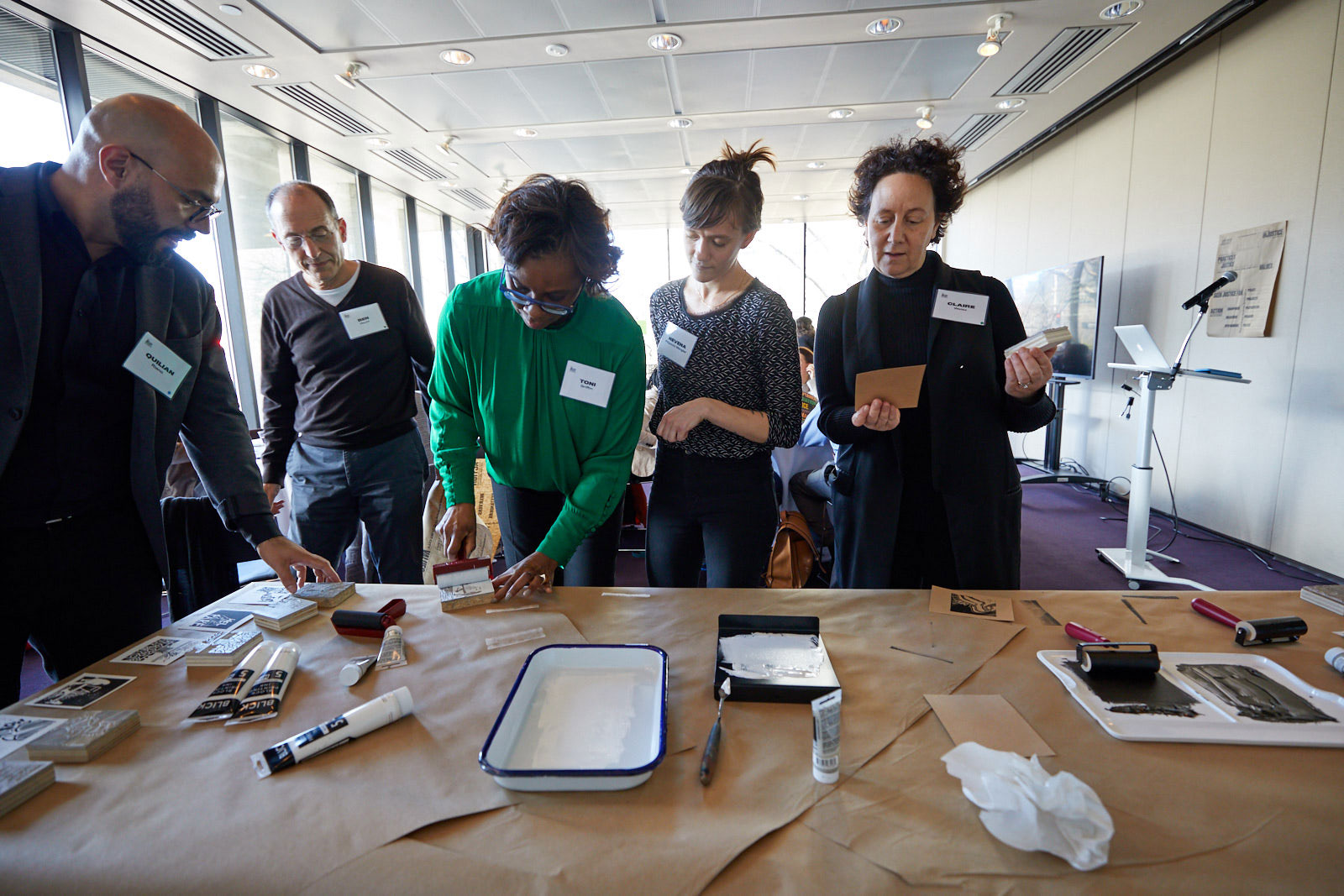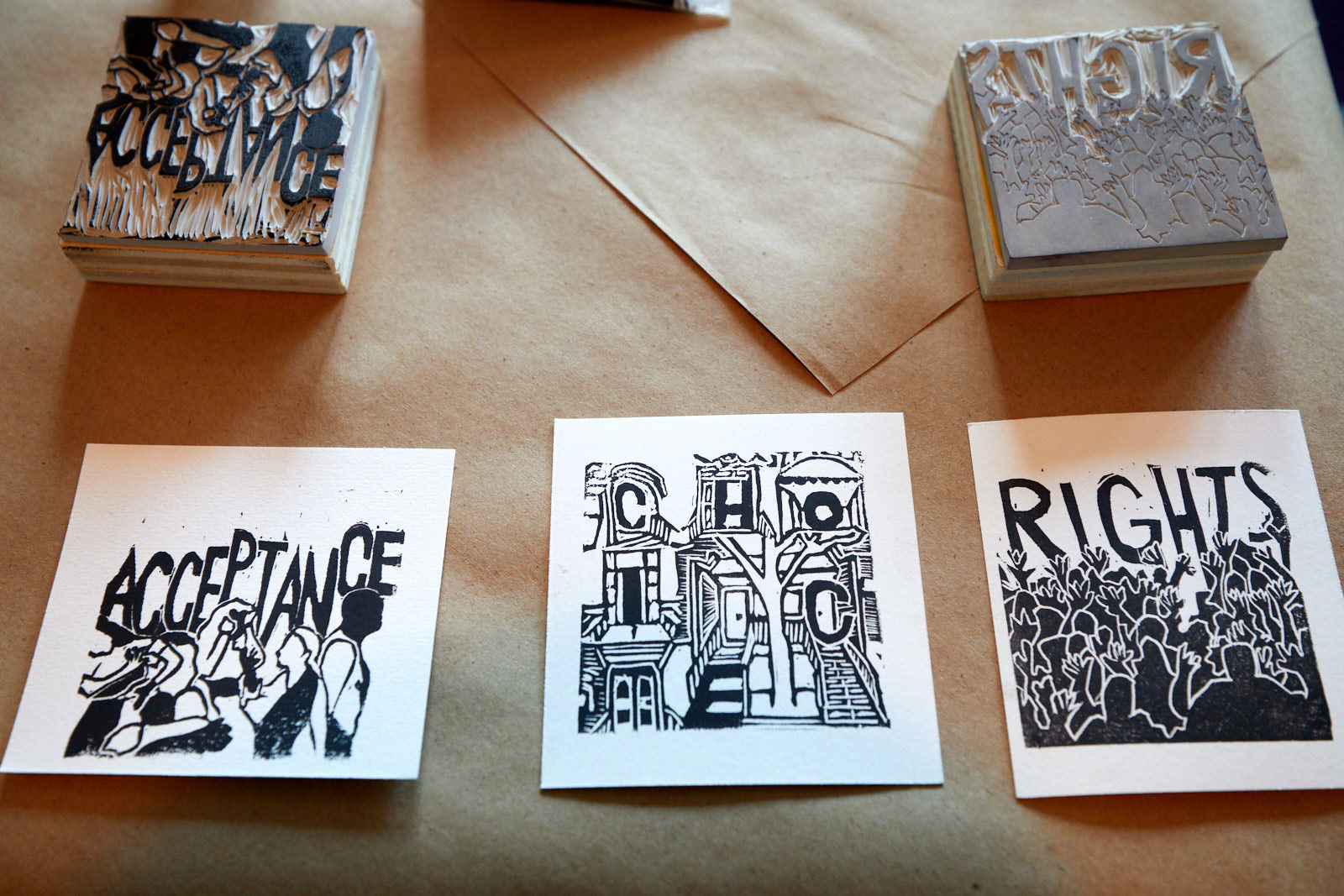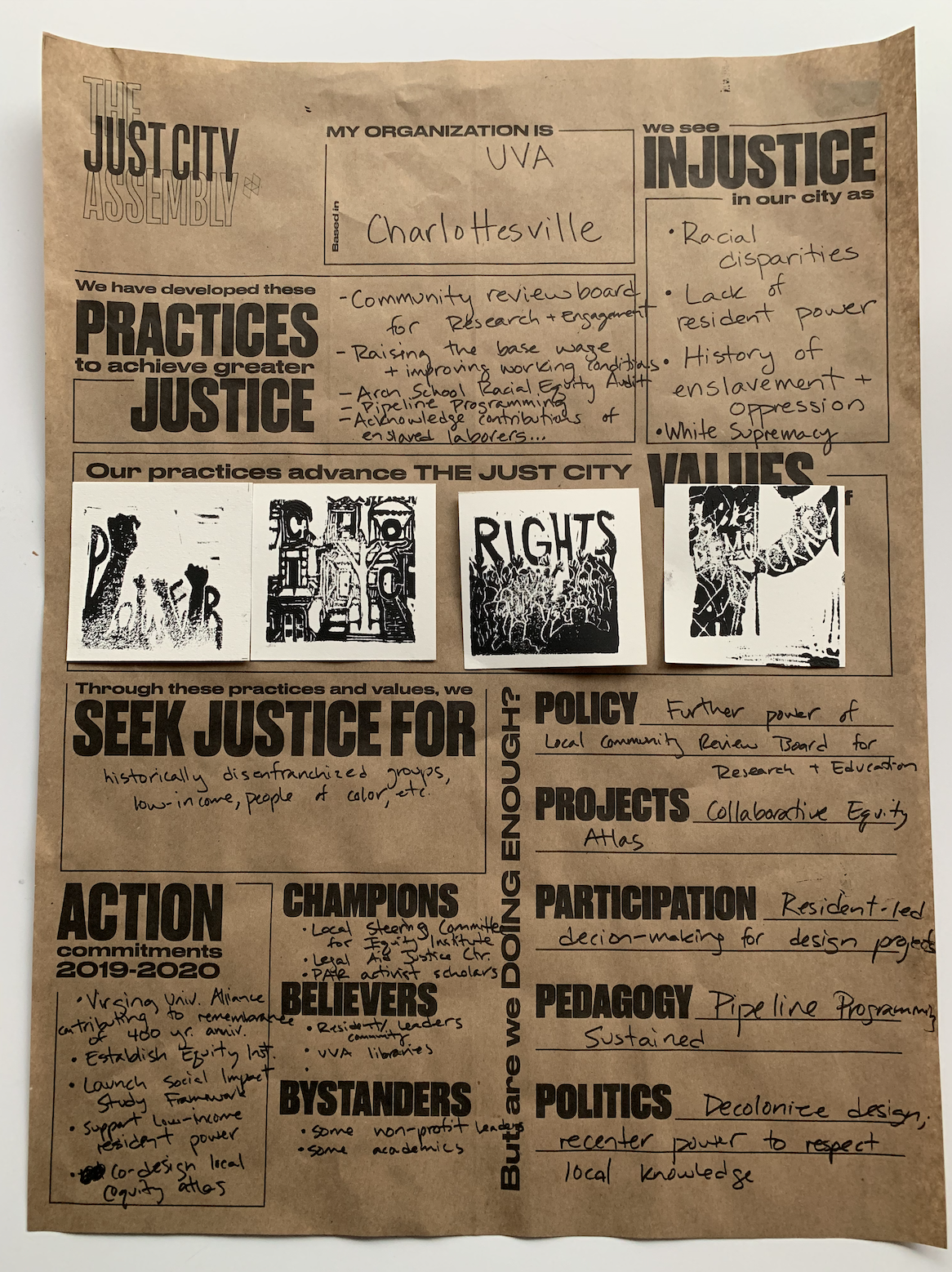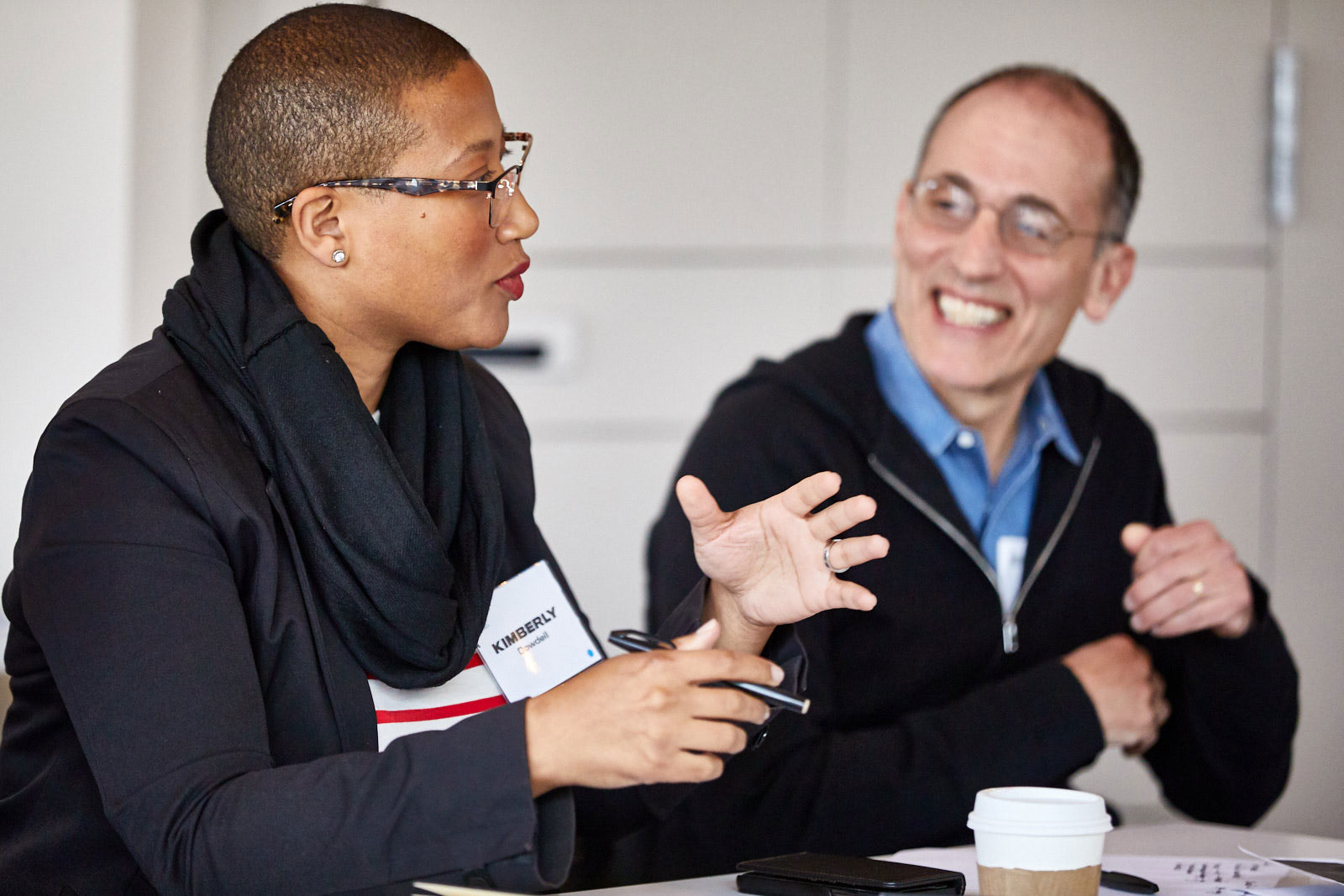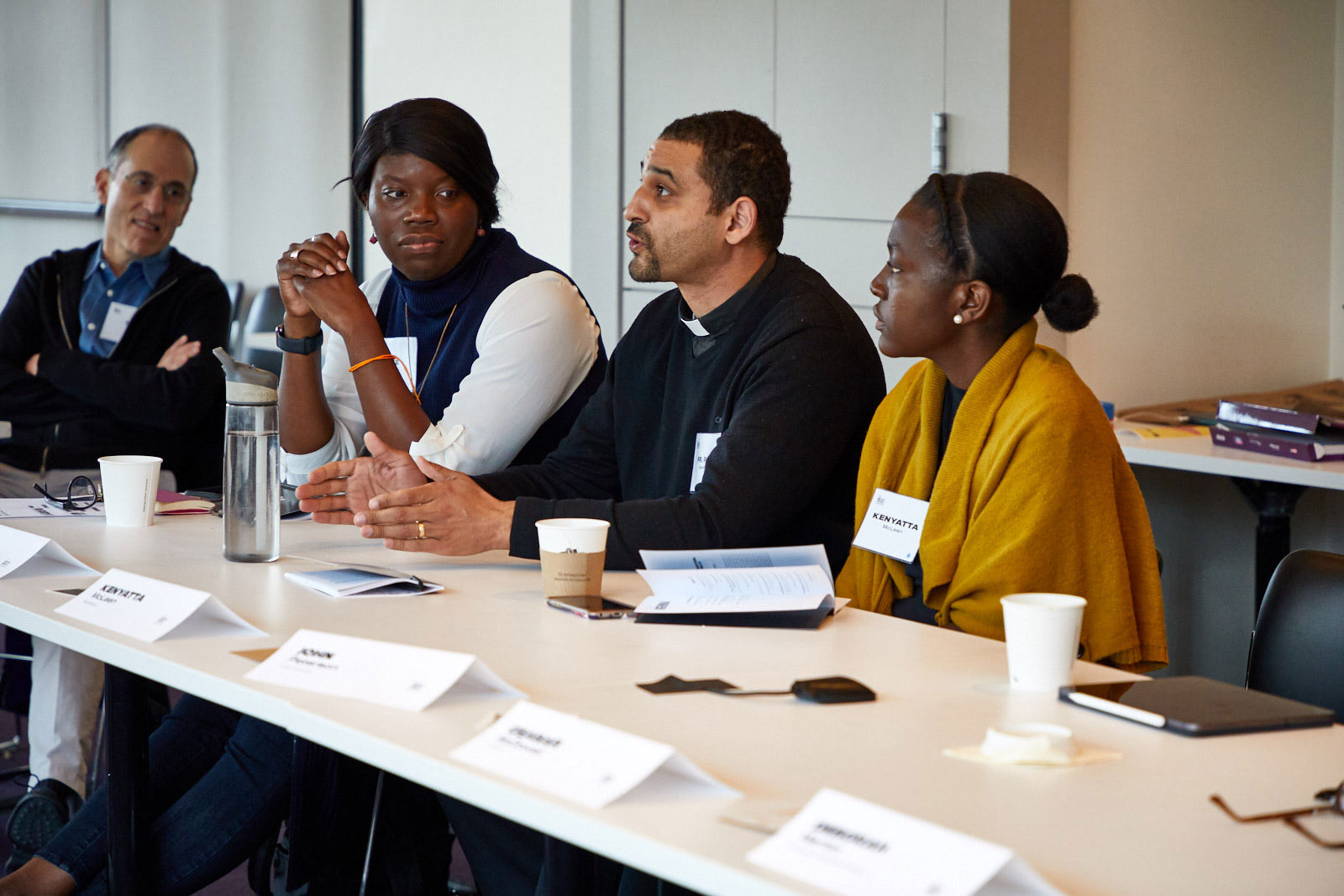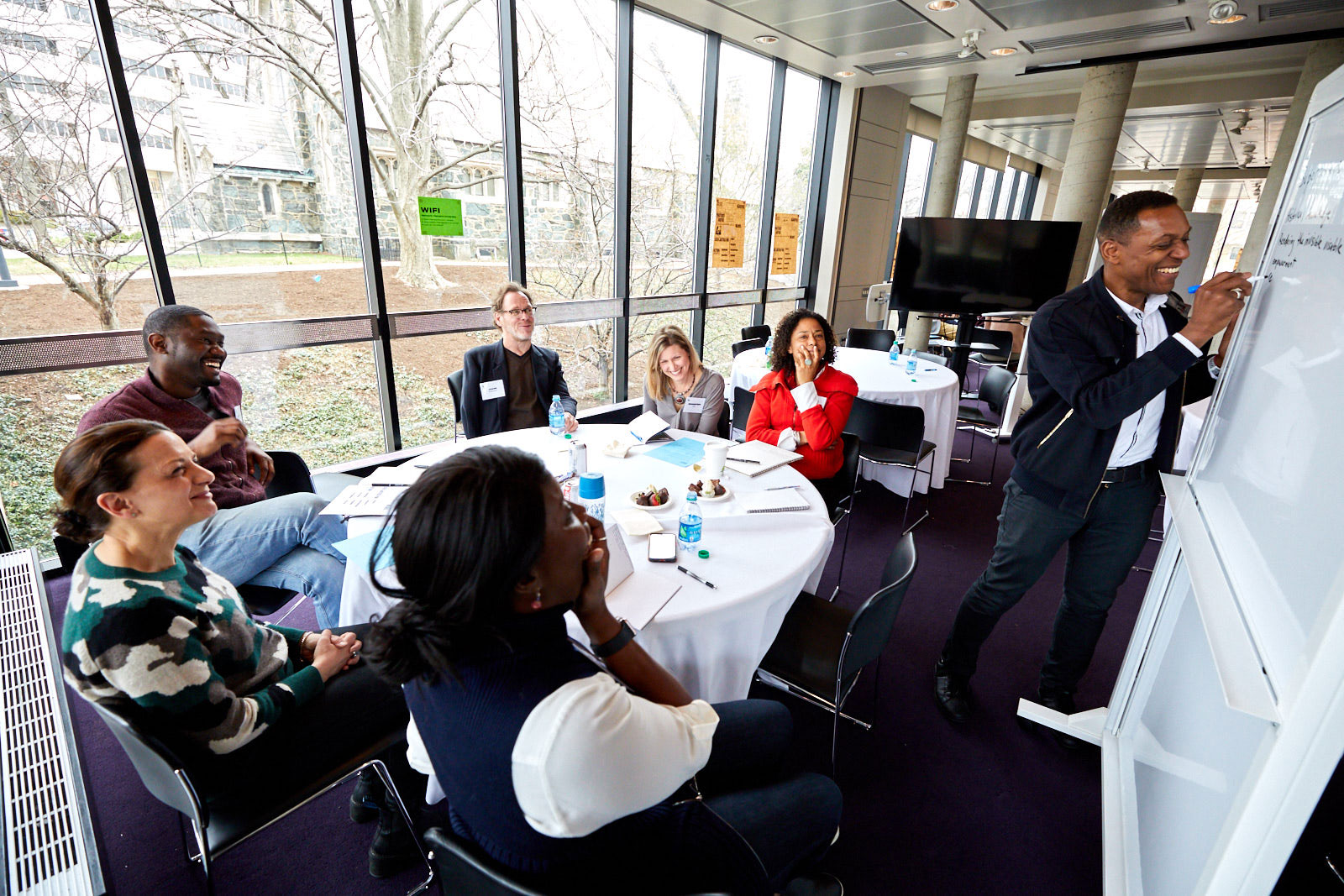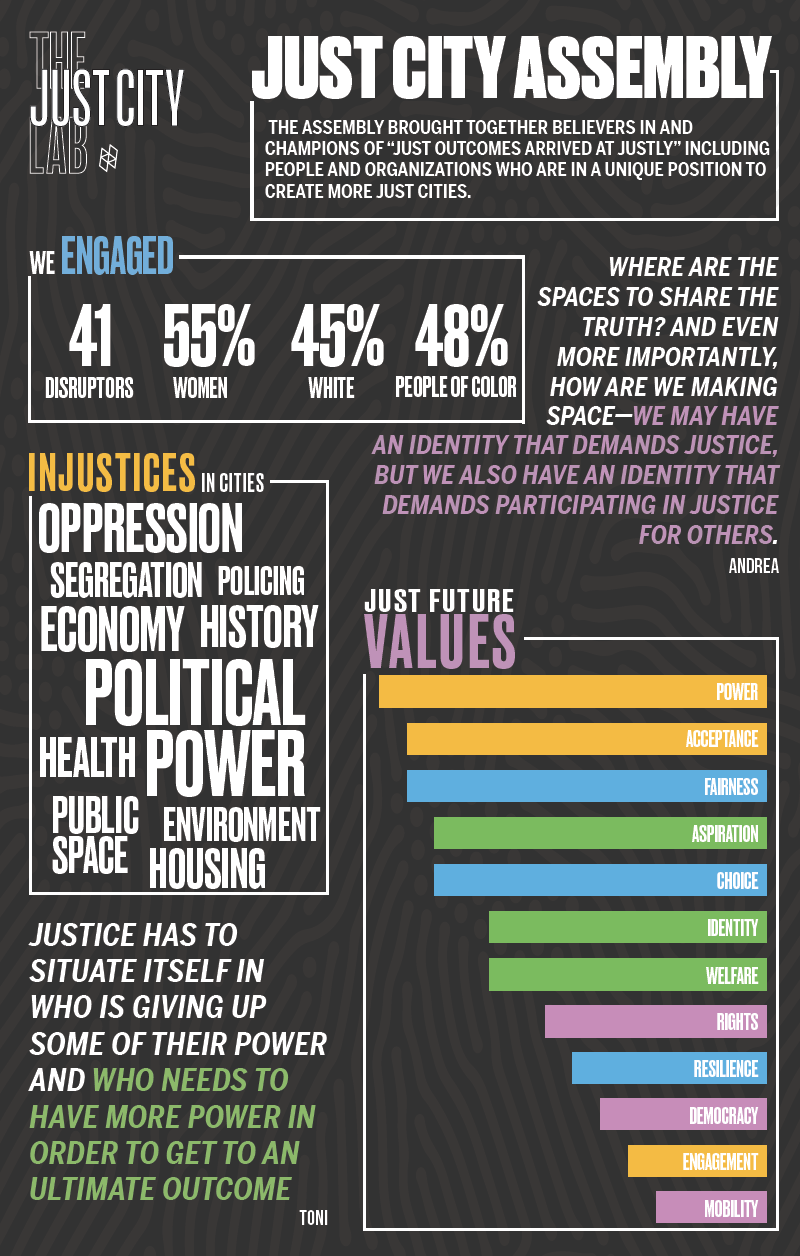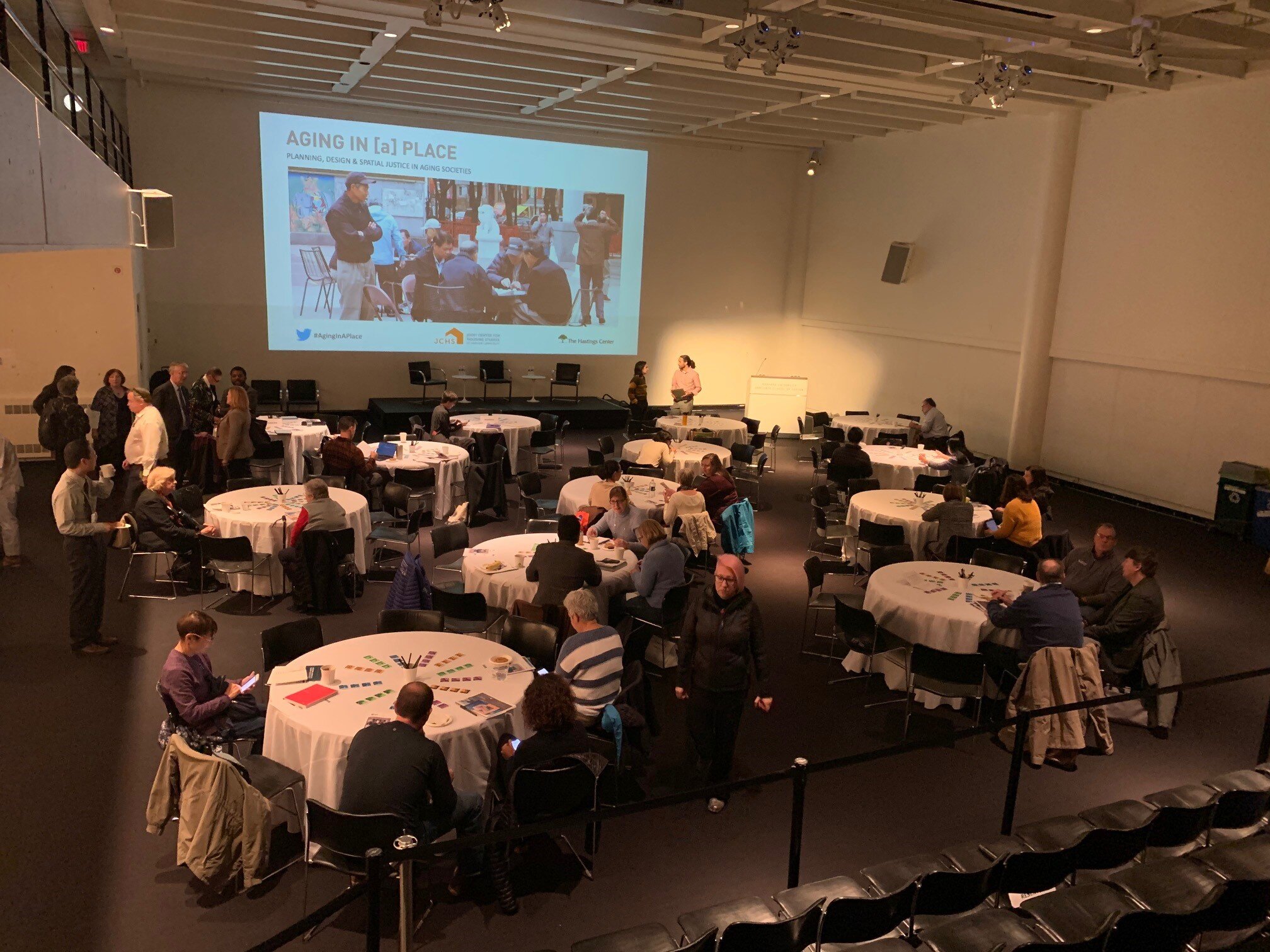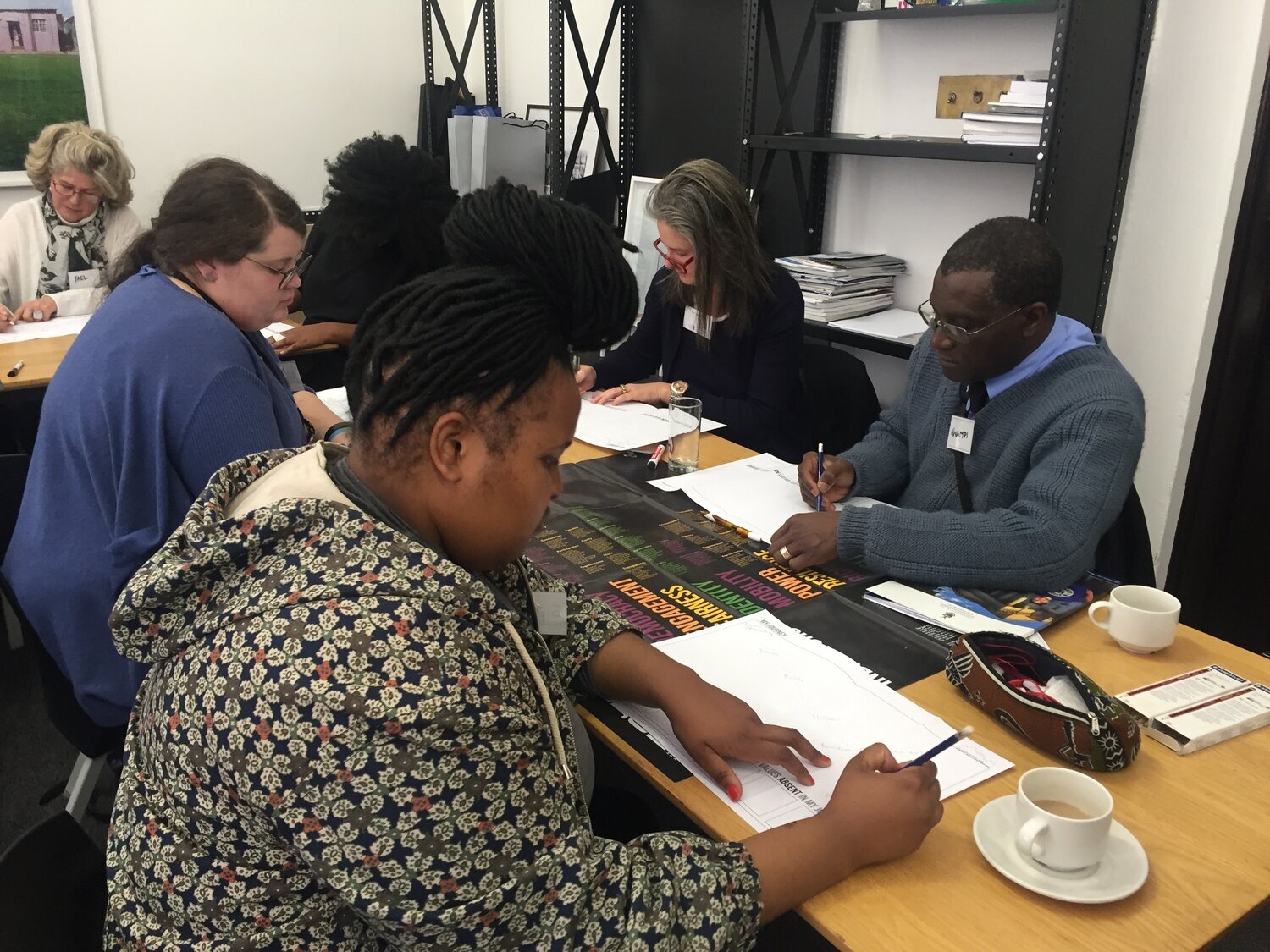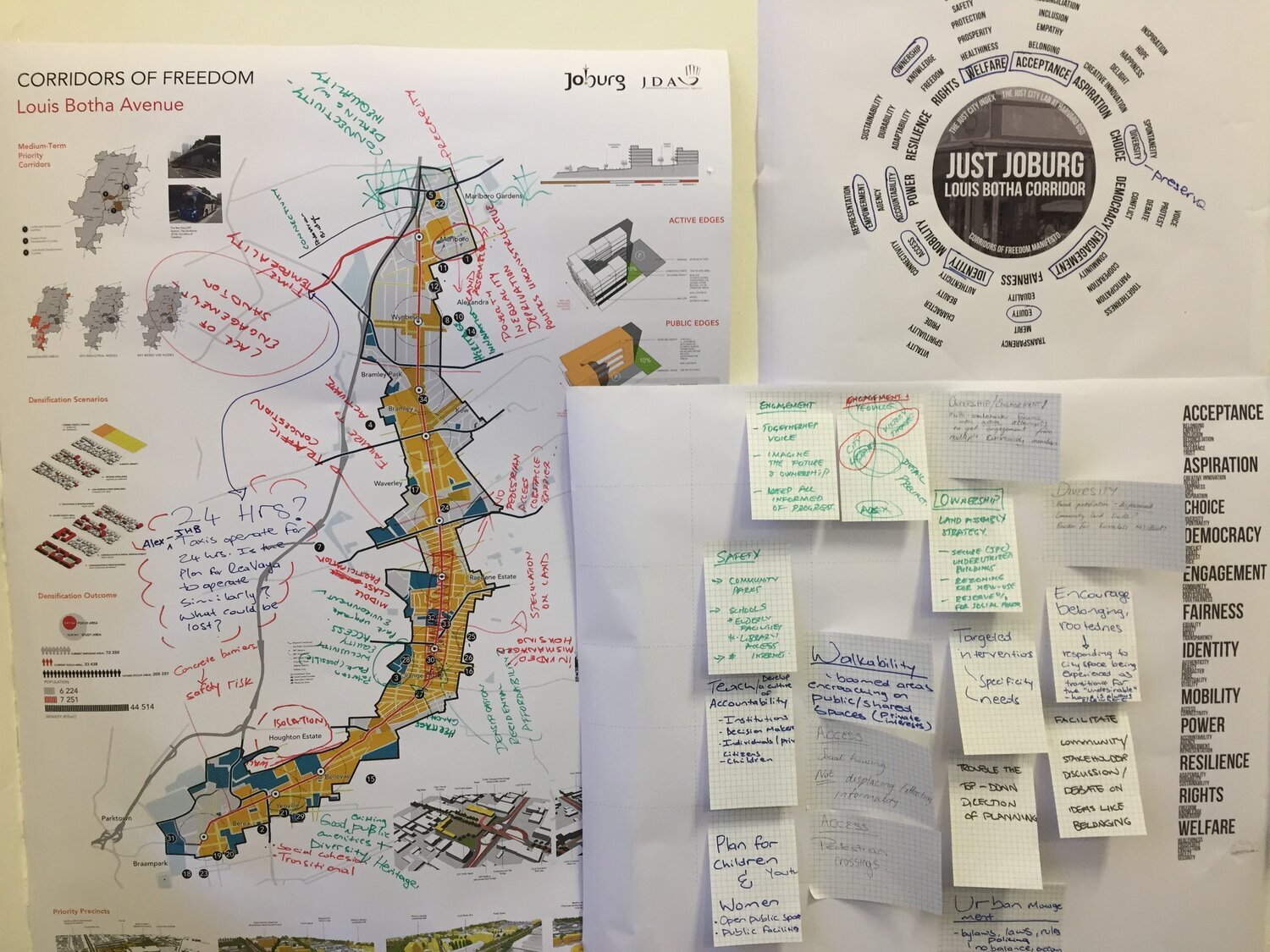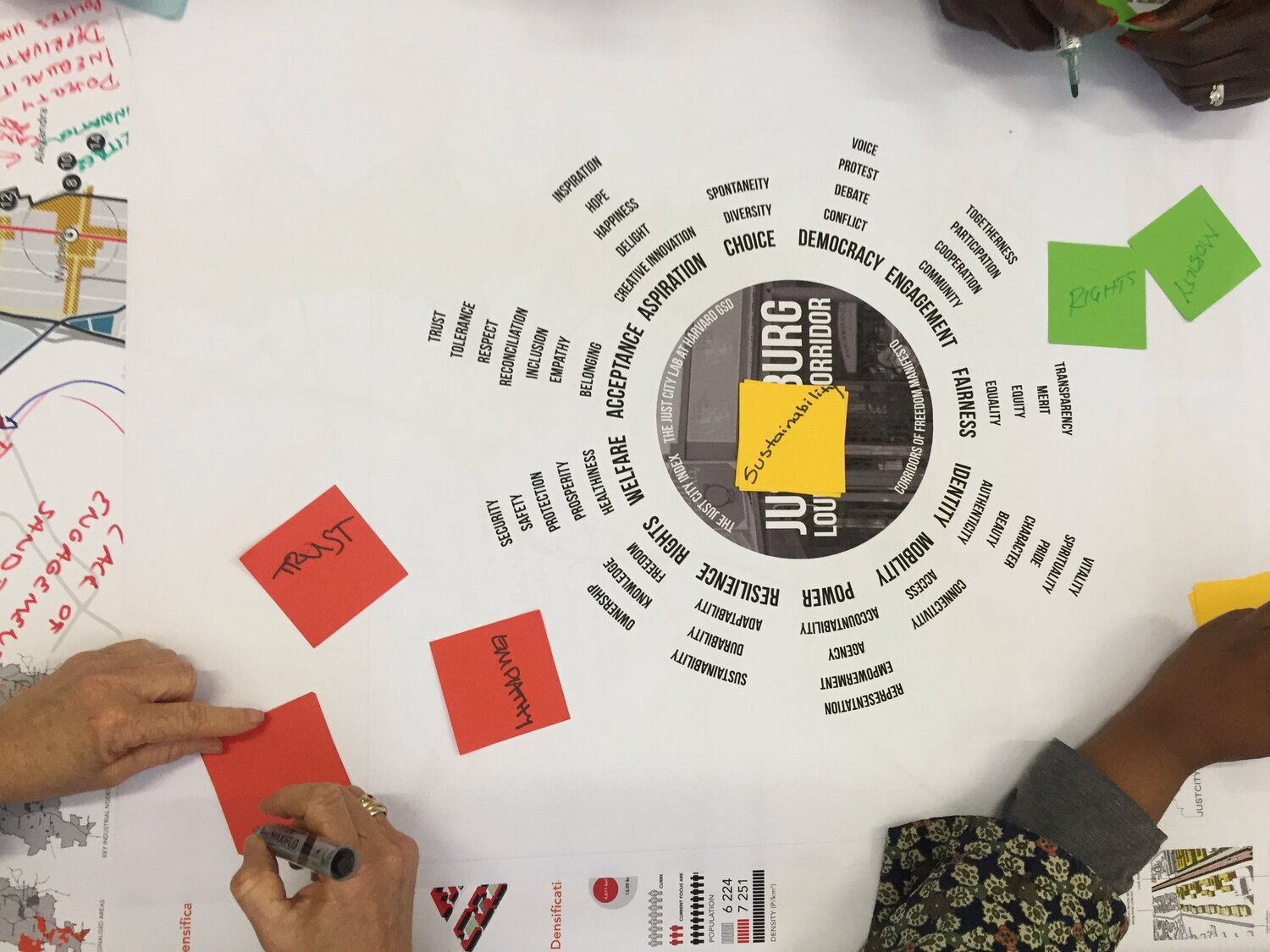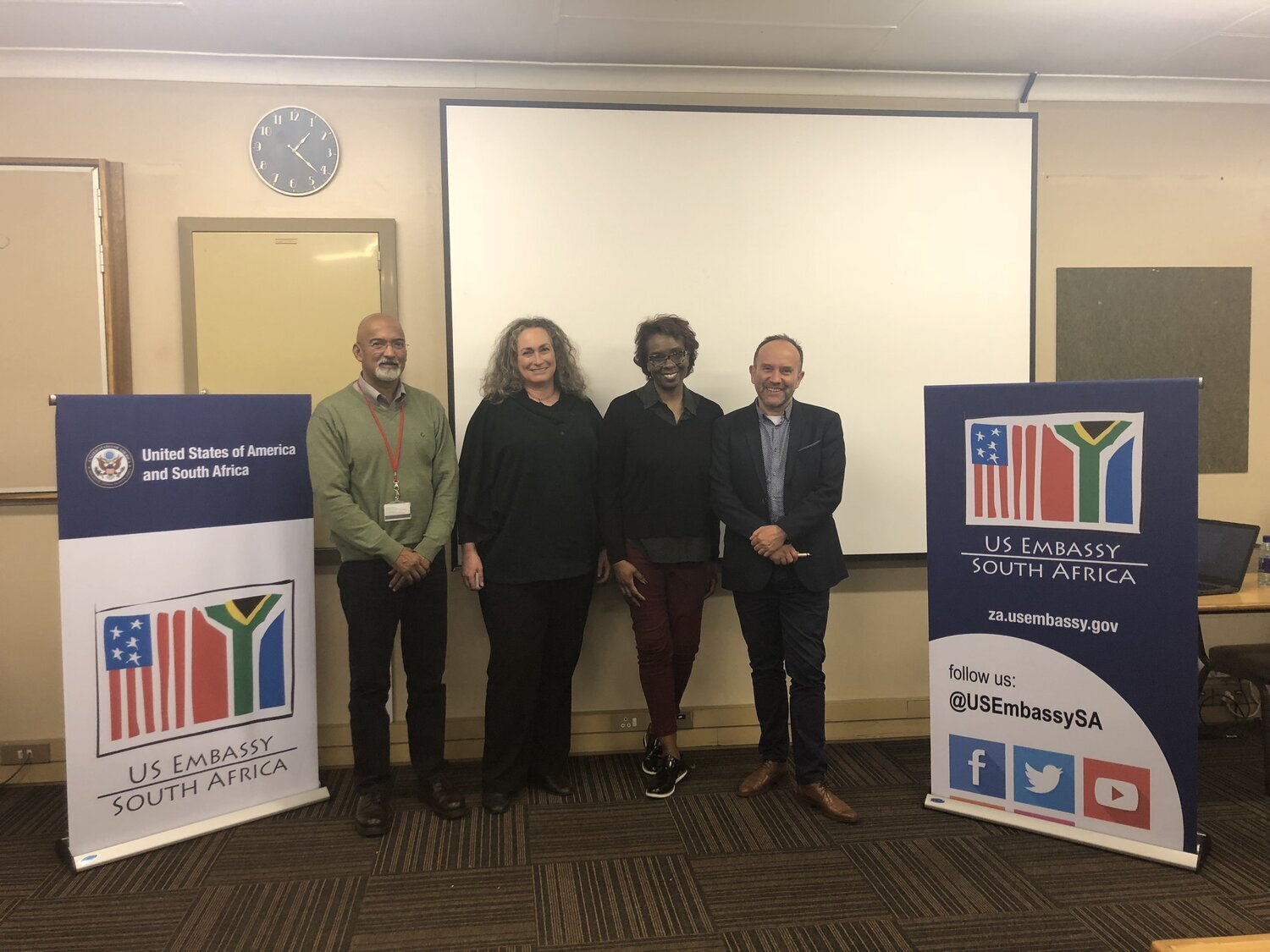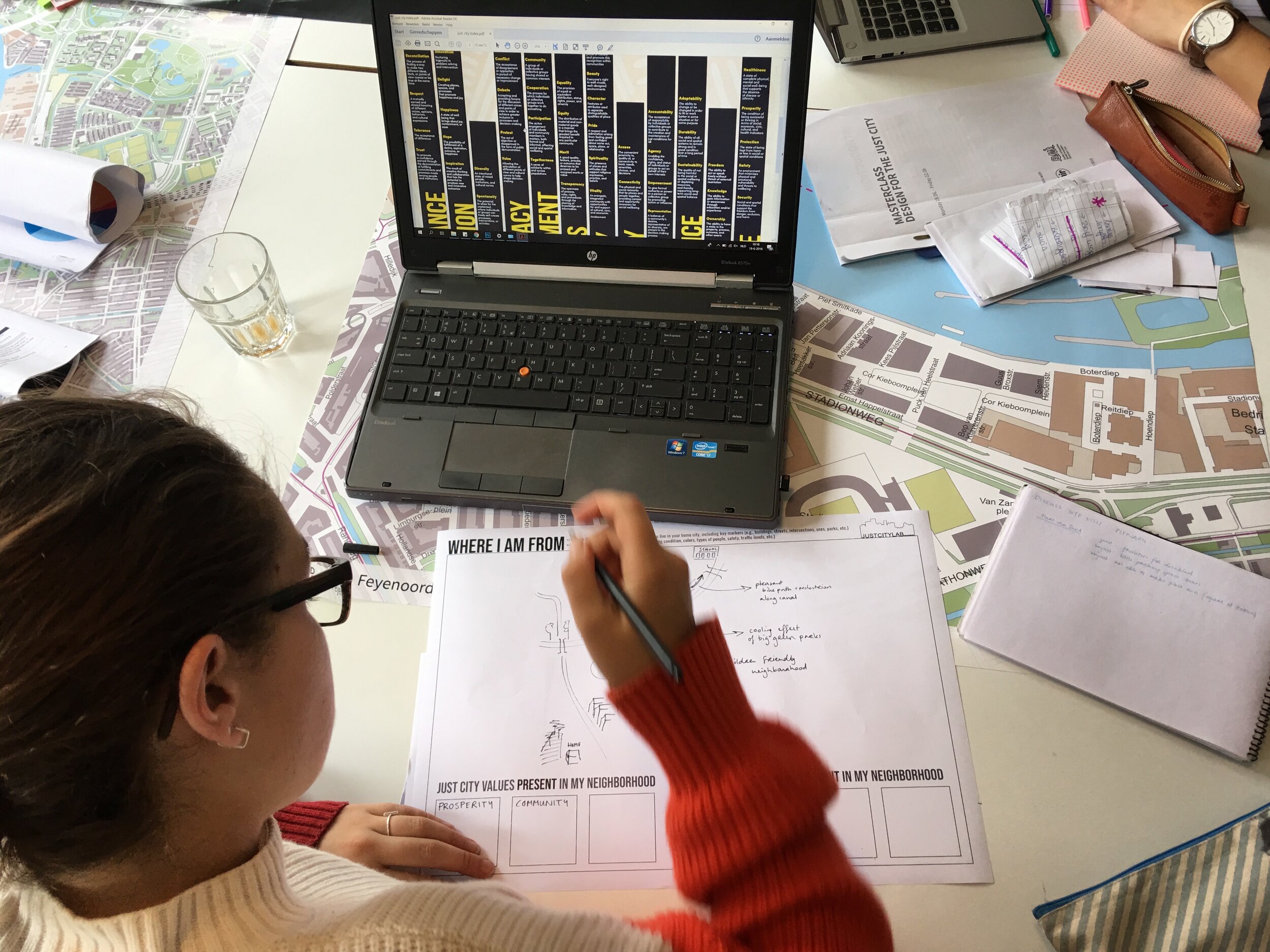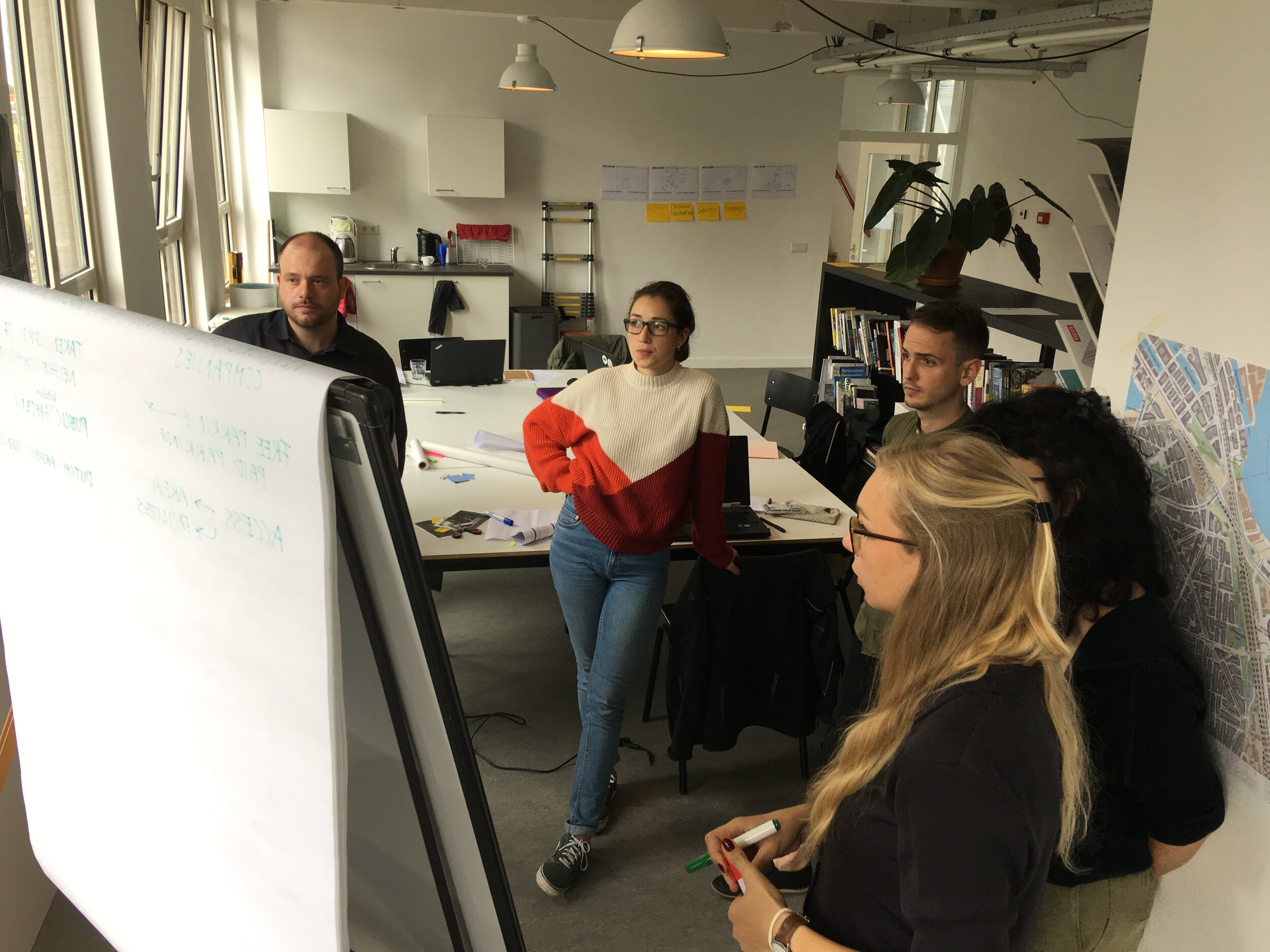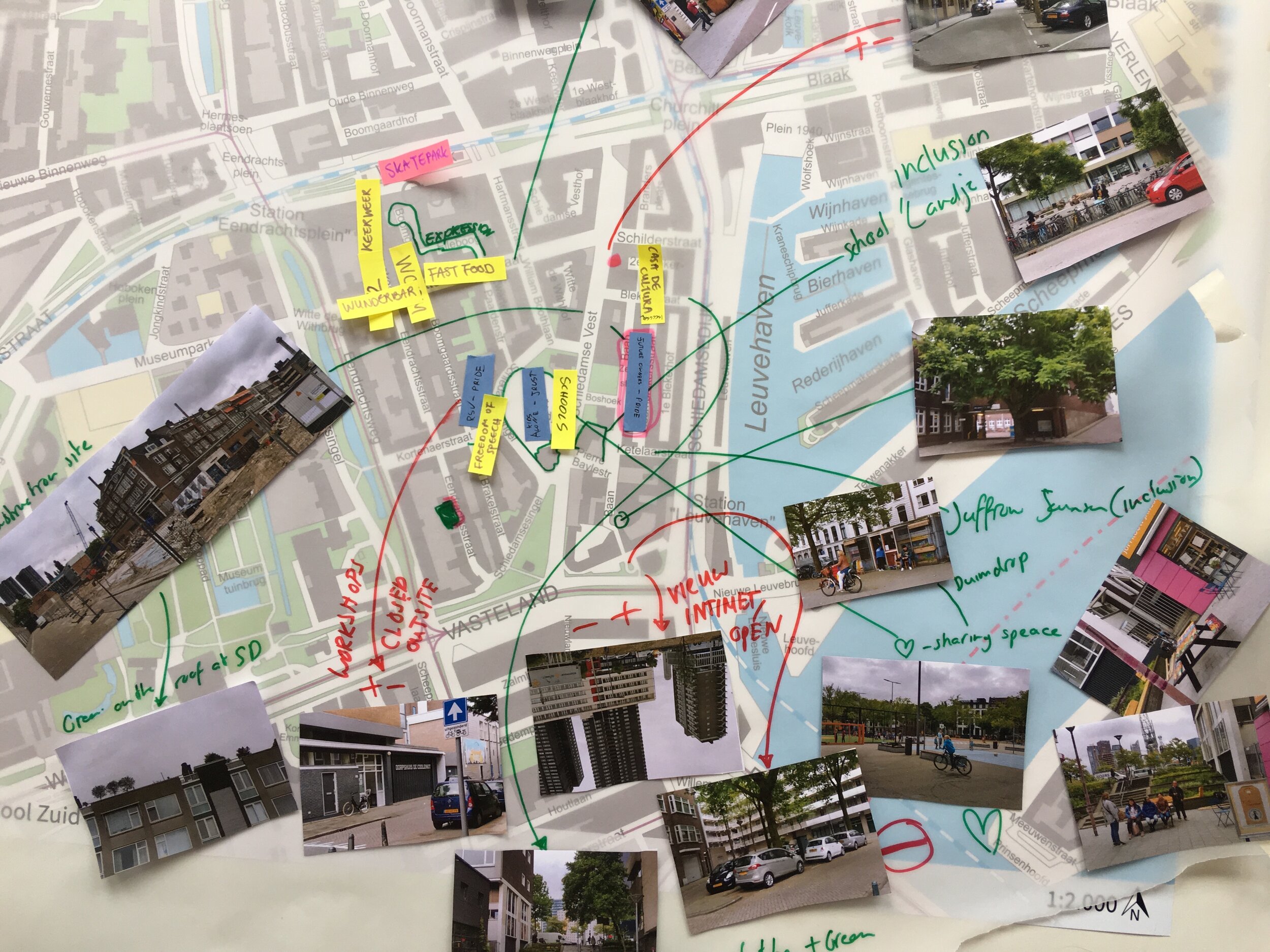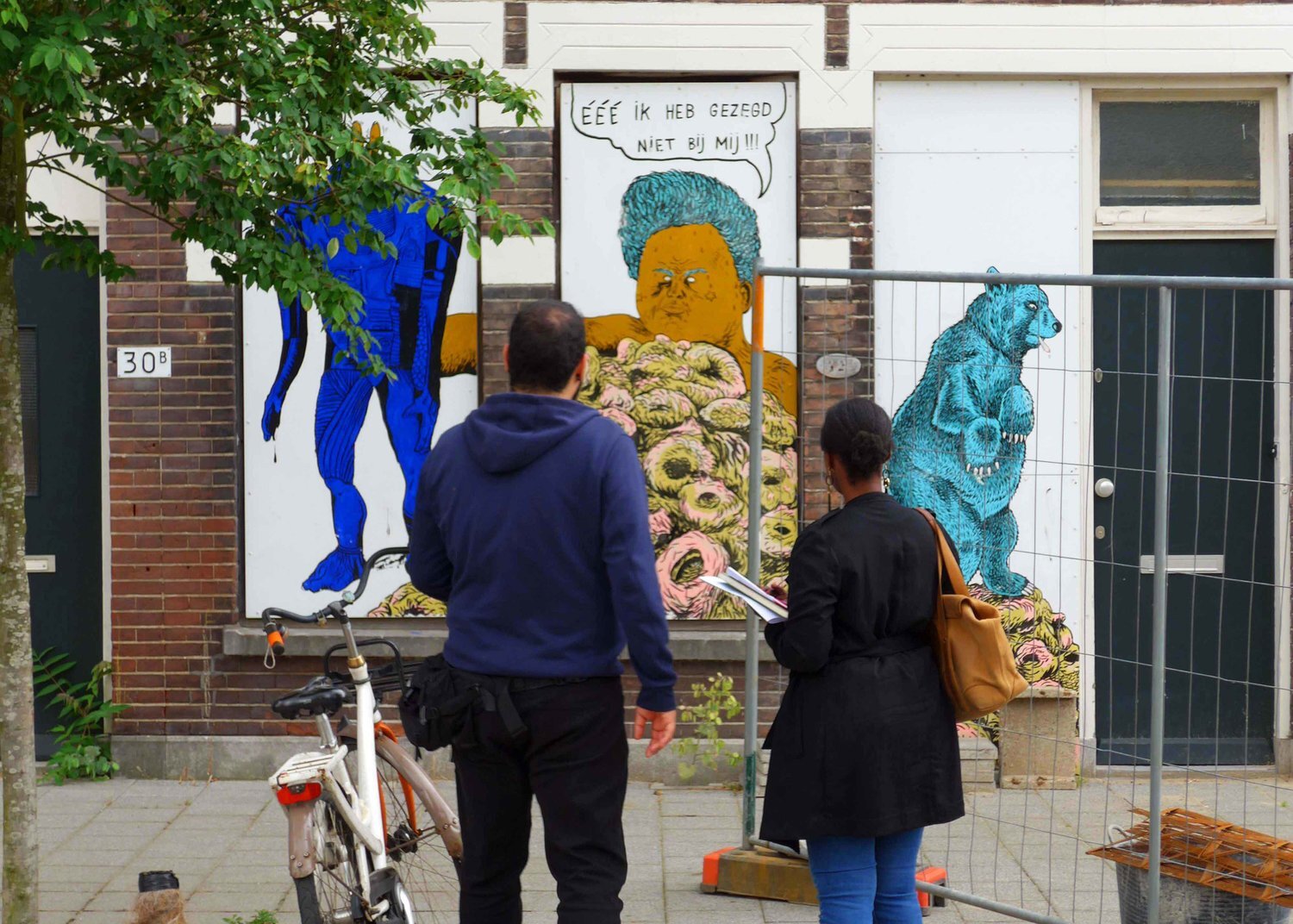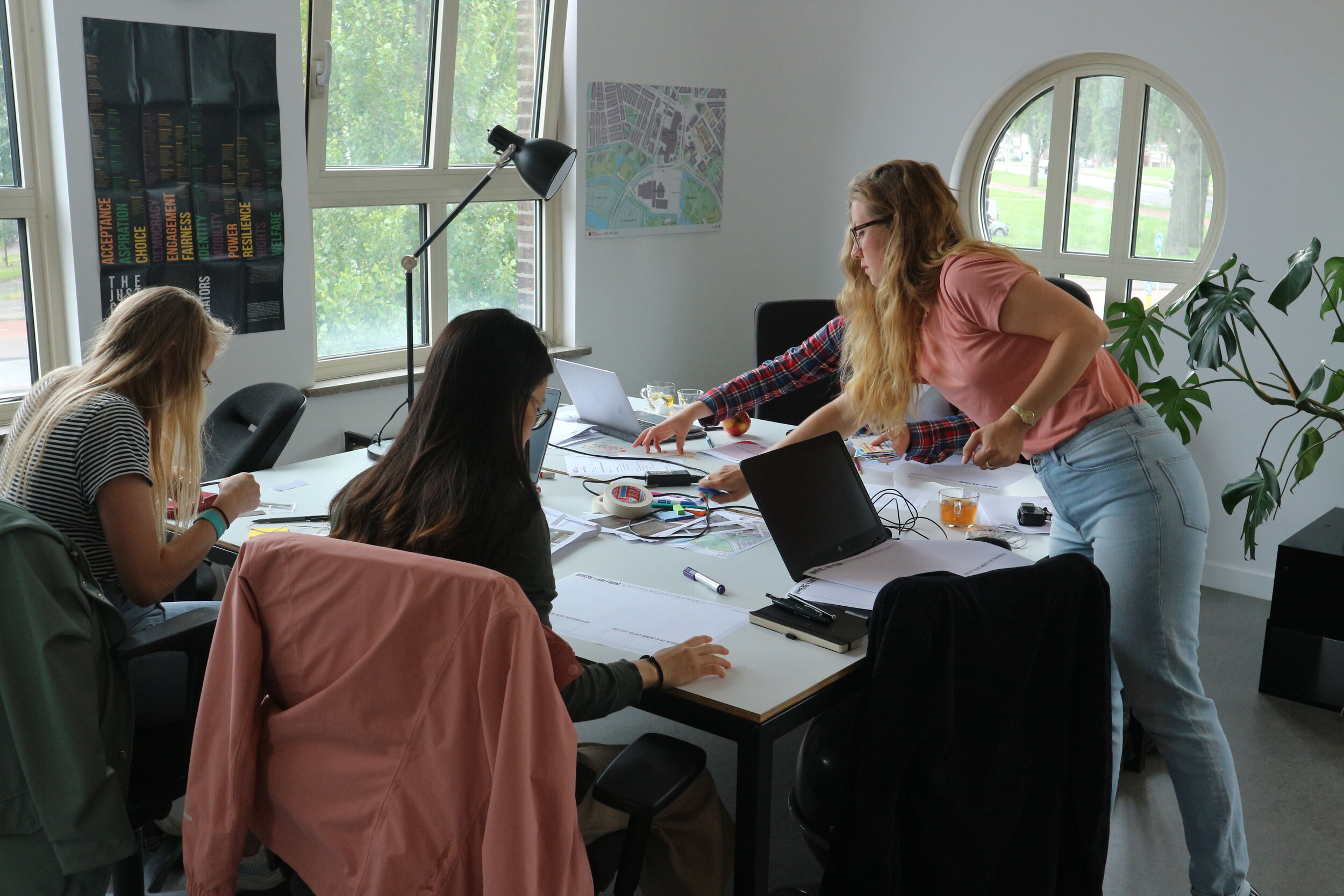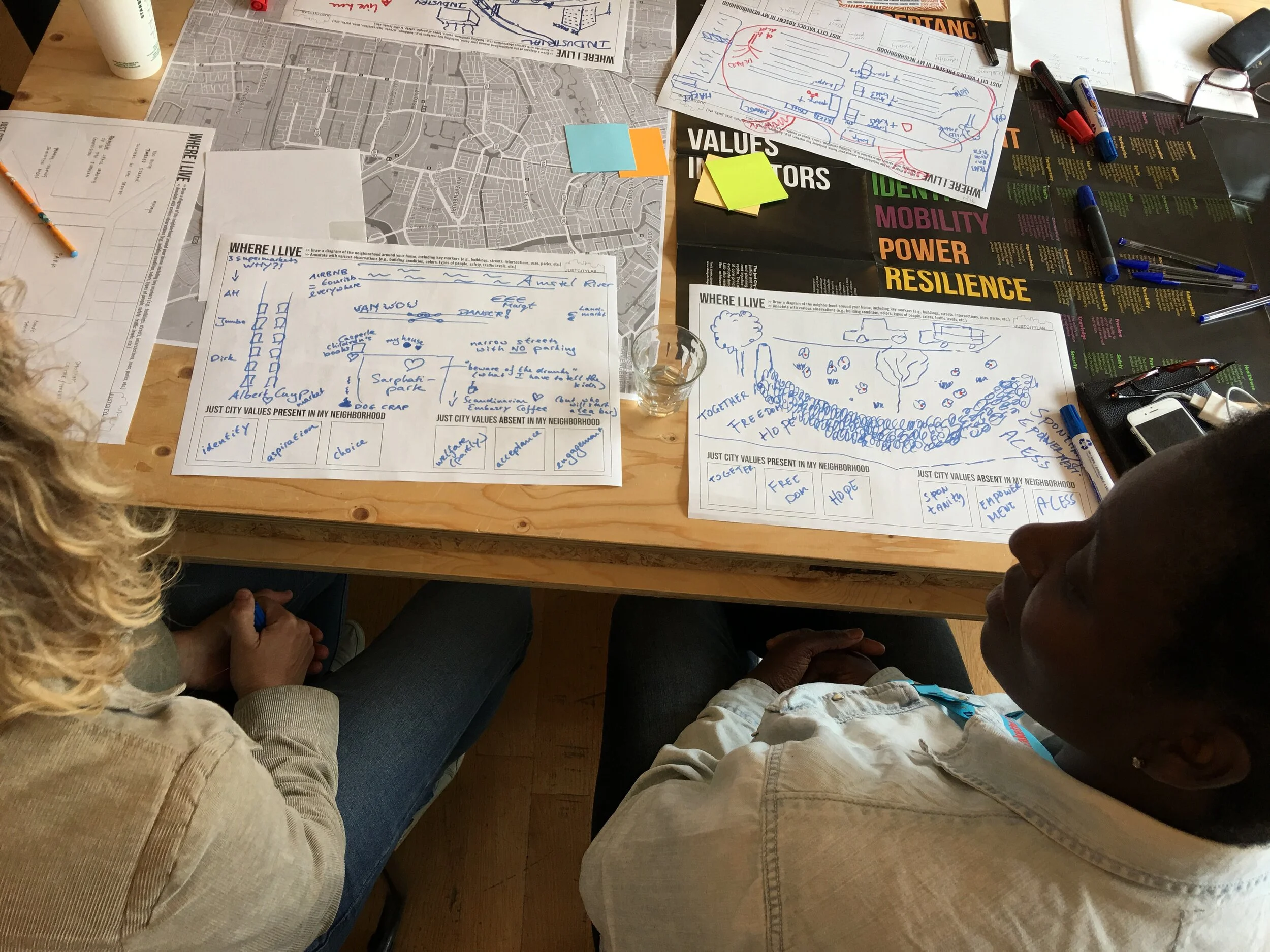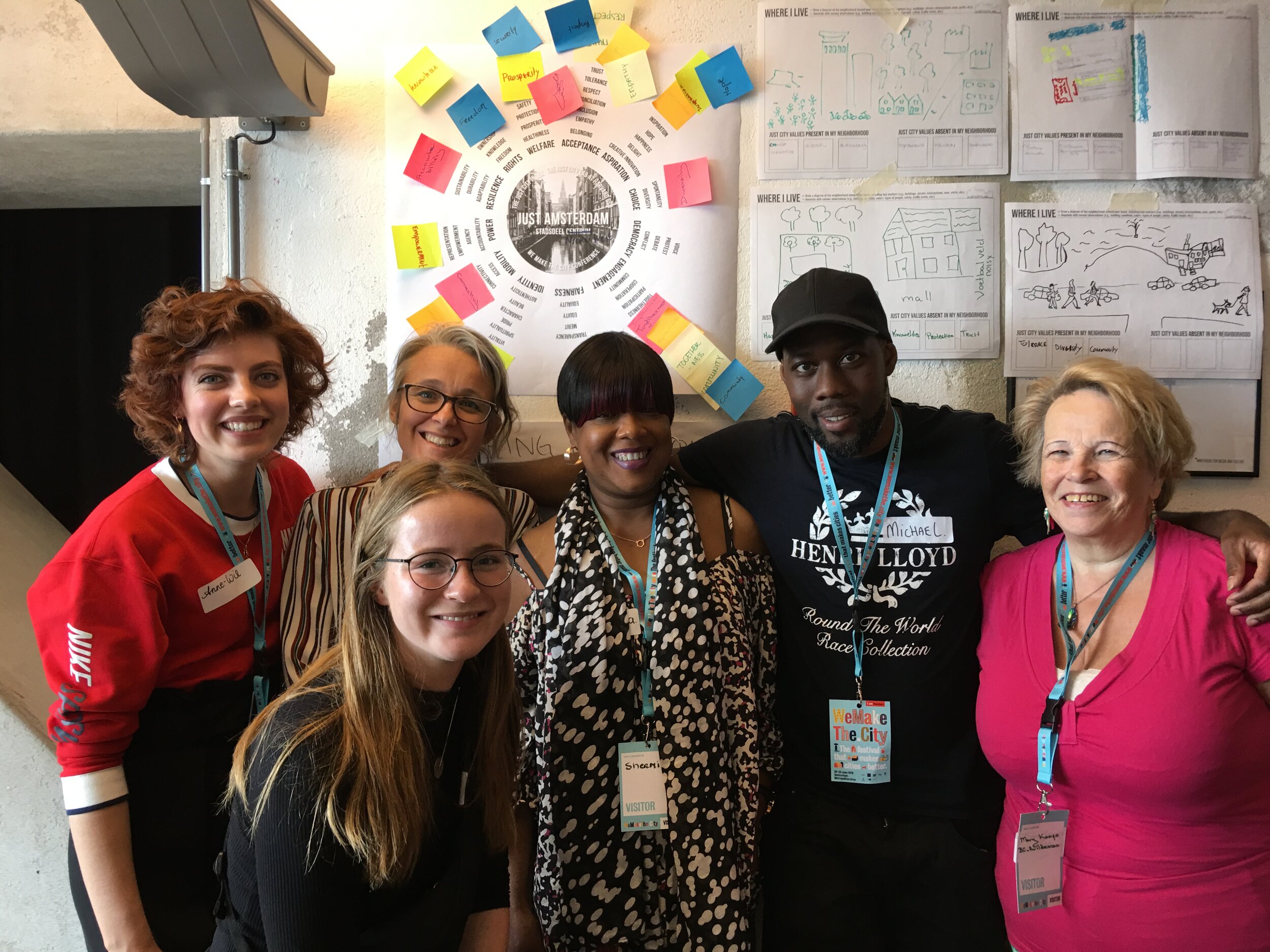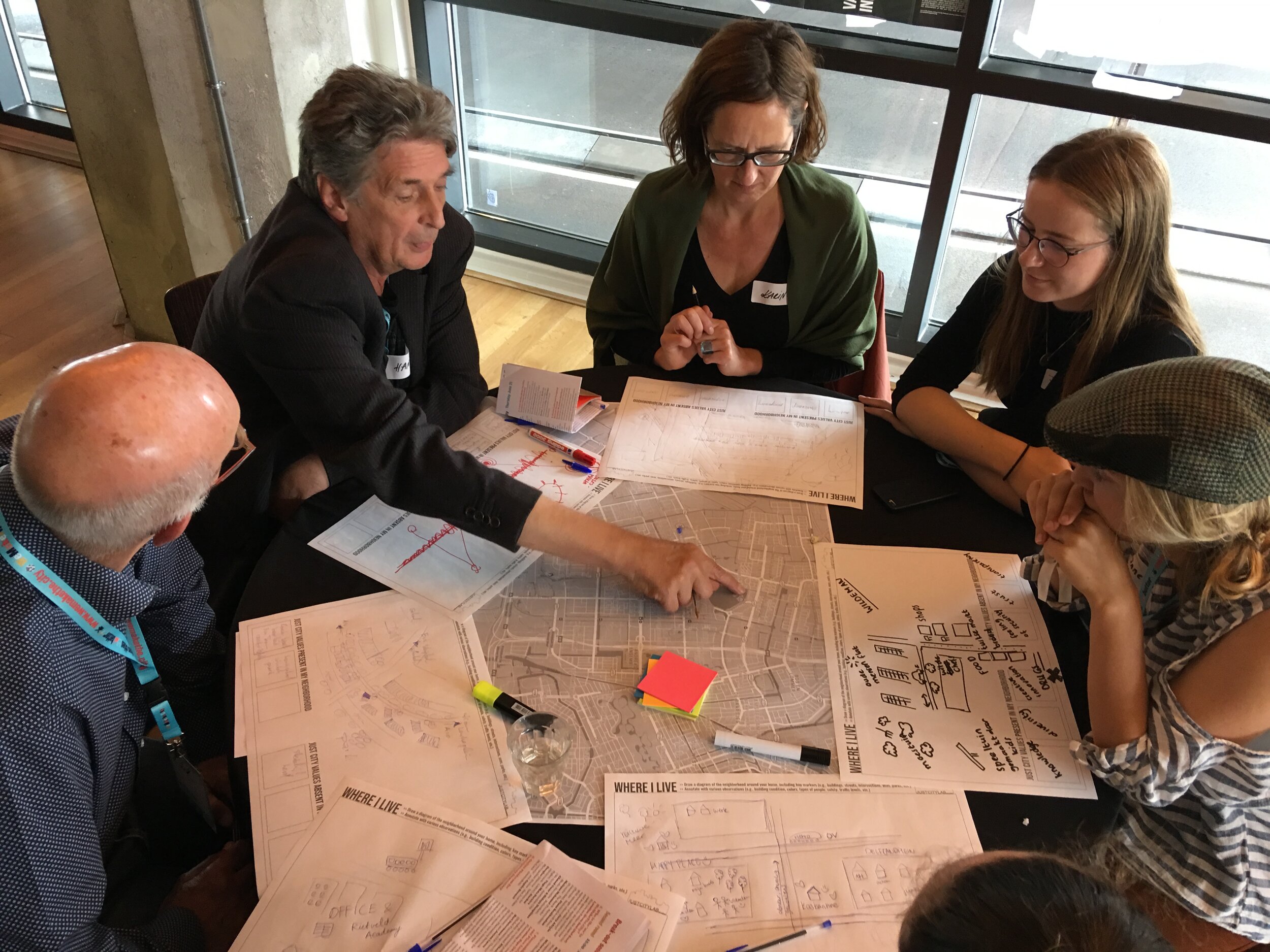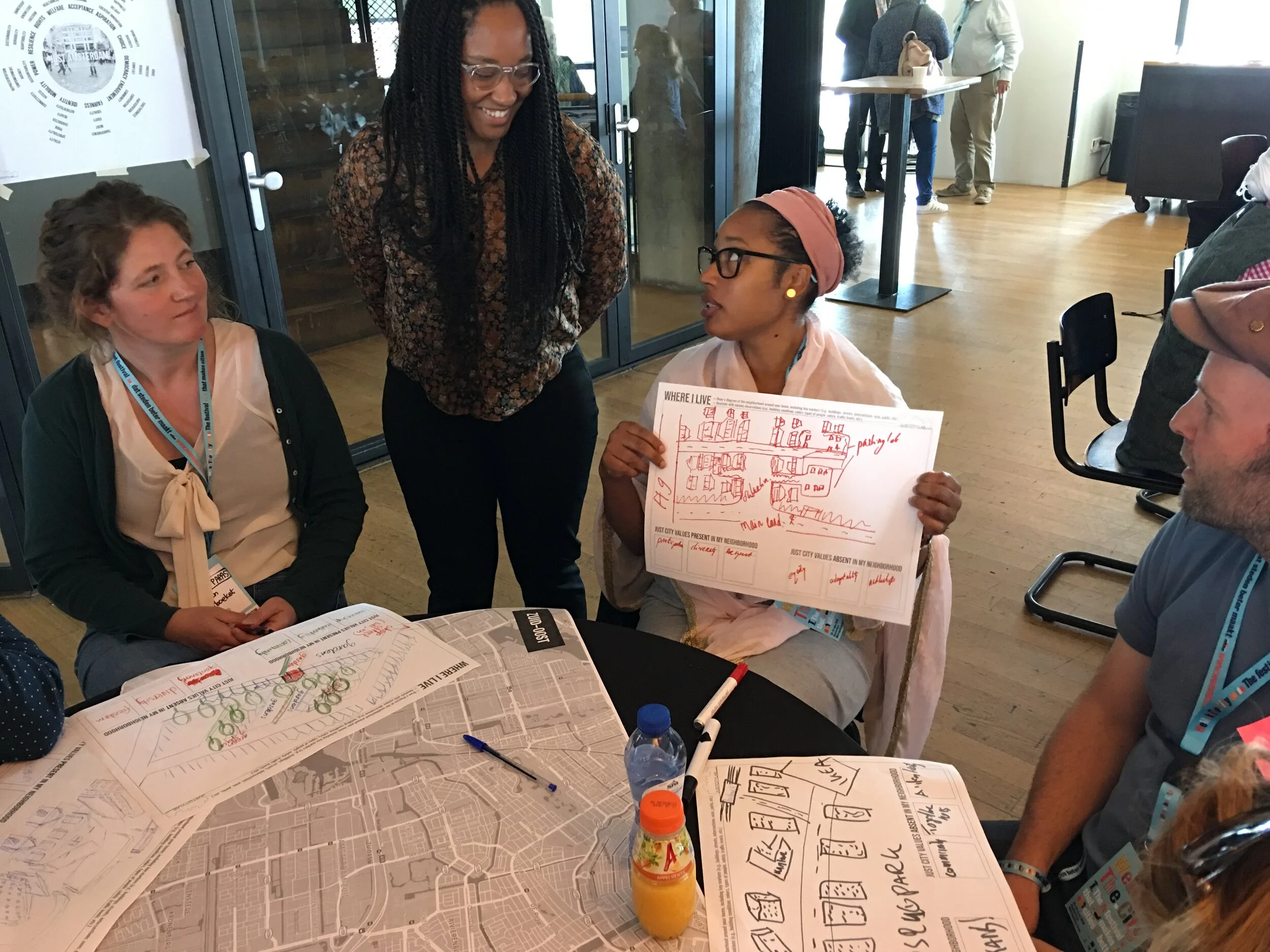MICD Just City Fellowship, 2020
Promoting design justice through leadership
From September to December 2020, the Mayors Institute on City Design (MICD) partnered with the Just City Lab (JCL) at the Harvard Graduate School of Design for the MICD Just City Mayoral Fellowship. This online fellowship was divided into three modules—Conditions of Injustice, Neighborhood Change, and Design for Justice—which were further divided into nine sessions. Together, they took seven mayors and their staffs through time demonstrating how the combination of politics and design have caused lasting harm in communities. Yet, the modules also made apparent how these same tools may be used to subvert injustice to create the alternative futures for which cities strive. MICD Just City Mayoral Fellows included Mayor Randall L. Woodfin ( Birmingham, AL); Mayor Stephen K. Benjamin (Columbia, SC); Mayor Yvonne Spicer (Framingham, MA); Mayor Errick D. Simmons (Greenville, MS); Mayor Chokwe Antar Lumumba (Jackson, MS); Mayor Shawyn Patterson-Howard (Mount Vernon, NY); and Mayor Vince R. Williams (Union City, GA ).
Black in Design, 2019
A black future grounded in justice
The Black in Design Conference, organized by the Harvard University Graduate School of Design African American Student Union (GSD AASU) recognizes the contributions of the African diaspora to the design fields and promotes discourse around the agency of the design profession to address and dismantle the institutional barriers faced by our communities.
The 2019 Black in Design conference, "Black Futurism: Creating a More Equitable Future" explored pathways to liberation through a design lens, considering the historical past and present structural oppression of black and brown communities locally and internationally. The Just City Cypher Room asked participants to create a manifesto that envisions the just future. On its first day, participants formulated personal definitions of black futurism, selected values needed to create a just Black future, and discussed their ideas with others. The second day served as the culmination of the weekend’s activities as attendees shared personal stories, raps, or poetry about their manifestos, the values of a just Black future and the Just City in which they hope to live.
See below to download the worksheet used and our findings.
JUST CITY assembly, 2019
A cross-sector convening of design justice champions
The pursuit of justice is inherently a collective act. In this spirit, the inaugural Just City Assembly @ HarvardGSD in April 2019 brought together believers in and champions of “just outcomes arrived at justly” — people and organizations who are in a unique position to create more just cities. The 41 attendees were asked to bring nothing but a knowledge of their work, a willingness to be unafraid to speak truth, and a desire to push a more visible agenda for disrupting injustice through design, planning and development. Reflecting on their own experiences — from successes to failures — pursuing the goals of a more just city, they developed manifestos, dreamt up utopian visions, and workshopped paths to action. They emerged from the experience with a renewed commitment to the goals of a more just city.
See below to download our program and findings.
AGING IN [A] PLACE, 2019
Creating a just city for all ages
Not all older adults can live in or move to age-supportive communities, neighborhoods, or homes that match their values and needs. Differences in access to places to age well can take the form of spatial inequalities, such as inadequate market rate housing for older adults on fixed incomes. The Aging in [A] Place Symposium applied a spatial justice lens to this question asking, who has access to age-friendly communities, accessible housing to prolong independence, and sufficient funds to cover housing and care? How can planners, policymakers, designers, and citizens make progress on social inequalities among older adults through planning and design? The Just City Lab asked participants what values are necessary to promote an improved quality of life for older adults.
See below to download the worksheet used and our findings.
Johannesburg, 2018
Using personal and national history to achieve justice
In May 2018, the Just City Lab travelled to the cities of Pretoria, Johannesburg, and Cape Town in South Africa to discuss the relationship between race, space, and design. While in Johannesburg, the Lab reviewed and critiqued the Corridors of Freedom initiative to understand the ways in which it can effectively incorporate values and strategies that promote greater social and spatial justice. Participants used their personal journey experiences of the city, combined with data and cognitive mapping to develop a manifesto, and conceptual strategies that advance an agenda for inclusion, connectivity and mobility.
Rotterdam, 2018
Furthering justice in the cosmopolitan city
The Veldacademie is a research organization that seeks to improve transdisciplinary research on city development through collaboration with different educational organizations. In June 2018, on the invitation of the Veldacademie and the Architecture Initiative Rotterdam, The Just City Lab lead a week-long masterclass titled, ‘Design for a Just City’. The workshop provided a framework and knowledge to show how design can be used as a means to achieve values of social justice. Released in June 2019, Veldacademie’s Design for a Just City publication captures a small fragment of the intensity and frenzy that took place during the week of 18 – 22 June 2018 in the written word. It has a dual purpose, as a chronicle of the masterclass and as a blueprint for other academics and professionals involved in the development of cities and public spaces to replicate such a workshop.
See below to download the report of our work.
AMSTERDAM, 2018
The just city—for the city, by the city
The WeMakeThe.City festival explored how policy makers, private industry, and residents might come together to create an Amsterdam of, by, and for everyone. Over the course five days, the festival held conferences, meet-ups, hackatons, expositions, and films to discuss the actions each must take to realize a more inclusive Amsterdam. The Just City Lab engaged participants in a conversation of how to ensure that all voices are represented in co-constructing the city.
BLACK in DESIGN, 2017
Developing the language to talk about justice
With a theme of “Designing Resistance, Building Coalitions,” Black in Design 2017 sought to recognize the contributions of the African diaspora to the design fields, as well as to “explore design as resistance and show how designers are advocates and activists”—a mandate relevant to the country’s current political tenor. The Just City Lab conducted a workshop asking participants to expand the language they use to describe the just city. Participants applied Just City Values to existing city projects as well as select values that are most aspirational to them in their work or in their city.
